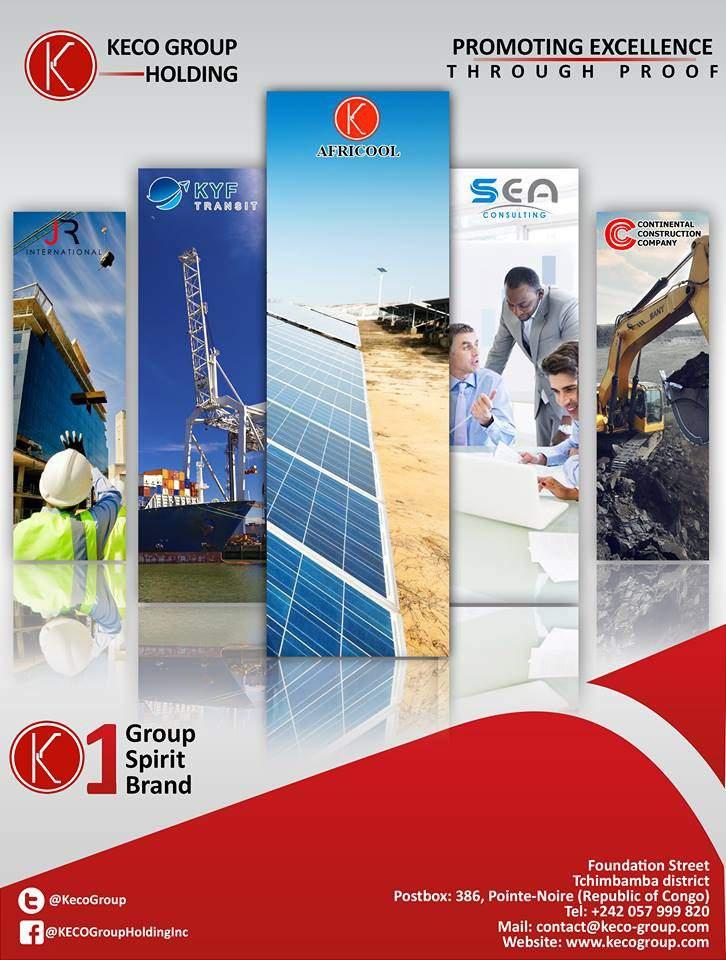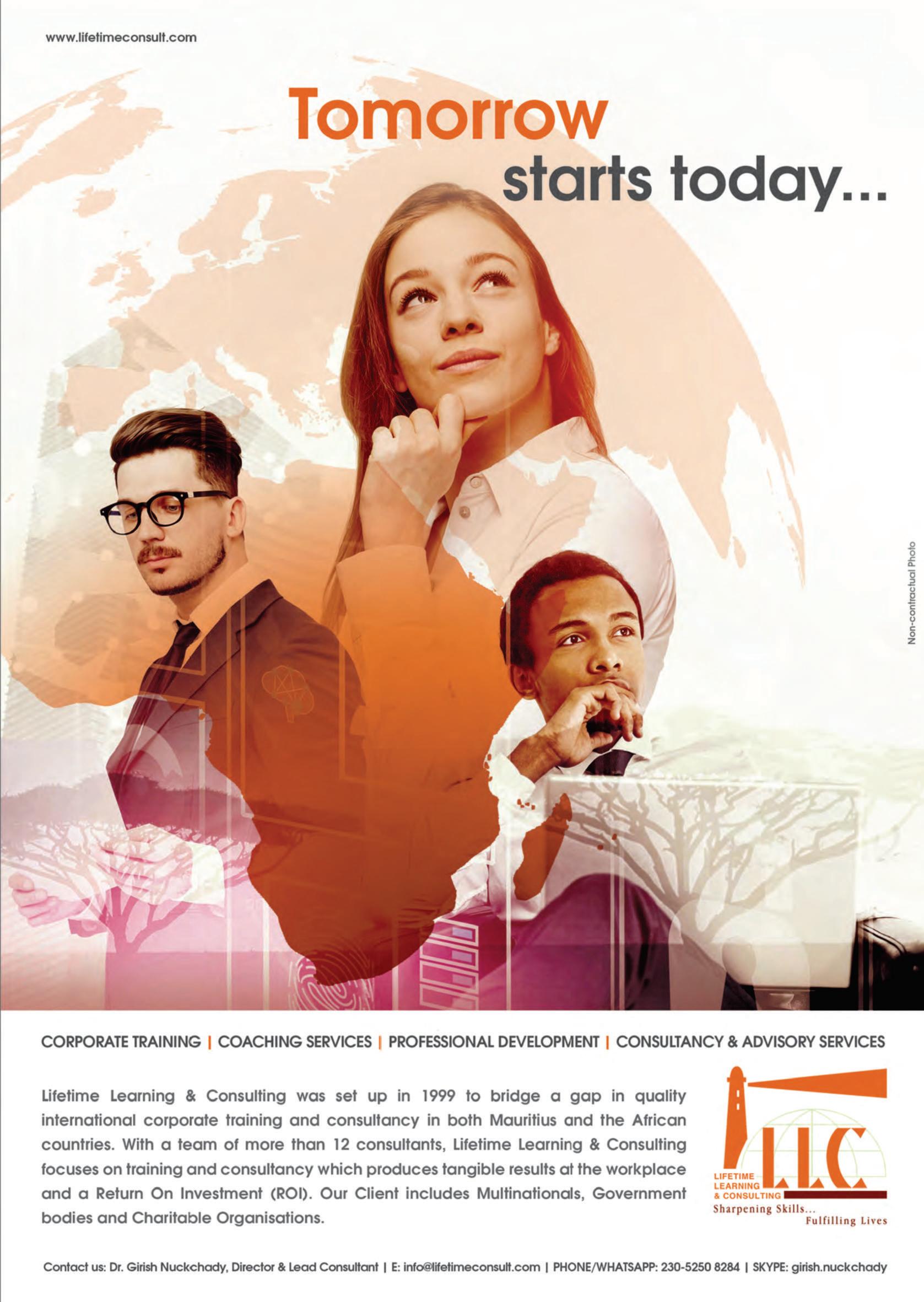












...A Publication of The African Leadership Organization
Ken Giami
Founder
& Executive ChairmanGroup Managing Editor - Kingsley Okeke editor@africanleadership.co.uk
Group Head, Editorial & Content Development - King Richard king.richards@africanleadership.co.uk
Creatives
Ayeni Adegbola Victor
Bernard Jeremiah
Editorial Board
Peter Burdin, London UK - Chair
Nwandi Lawson, Atlanta USA - Member
Simon Kolawole, Lagos Nigeria - Member
Peter Ndoro, SABC EditorJohannesburg - Member
Frenny Jowi, Nairobi Kenya - Member
Brig. Gen. SK Usman Rtd., Abuja Nigeria - Member
David Morgan, Washington DC USA - Member
Furo Giami - Chief Operating Officer / Executive Director
Boma Benjy - Iwuoha - Group Head, Finance & Administration
Sasha Caton - Manager, UK & European Operations
Ehis Ayere - Group Head, Sales & Business Development
Amana Alkali - Executive Assistant to the Chairman
Samuel M. Elaikwu - Manager, Sales & Business Developments
Happy Benson - Director of Operations Nor th America
Christy Ebong - Head, Research & Admin - Nor th America
Stanley Emeruem - Business Development Manager
Muna Jallow - West African Rep. for The Gambia & Senegal
Oluwatoyin Oyekanmi - Head, South African Bureau
Bernard Adeka - Head, Nigeria SS/SE
CORPORATE HEADQUARTERS
Por tsmouth Technopole, Kingston Crescent, Por tsmouth PO2 8FA , United Kingdom;
t: 44 23 9265 8276 | fax: +44 (0)23 9265 8201 | e: info@africanleadership.co.uk w | www.africanleadershipmagazine.co.uk
AFRICA & REGIONAL REPRESENTATIVES
Abuja Accra Atlanta Banjul Bujumbura Freetown Johannesburg London Monrovia Nairobi Washington DC
ISSN 2006 - 9332
While great care has been taken in the receipt and handling of materials, production and accuracy of content in the magazine, the publishers will not take responsibility for views expressed by the writer
JOIN THE CONVERSATION
www.africanleadershipmagazine.co.uk
FOLLOW US ON SOCIAL MEDIA


Facebook : African Leadership Magazine

Twitter : @AfricanLM
Instagram: @africanleadershipmag
LinkedIn: African Leadership Magazine

YouTube: African Leadership Magazine
...Identifying, Celebrating & Enabling Excellence in Africa

New World Bank Chief Hits the Ground Running
“TIME IS SHORT”
54 46
A quick peek at Africa’s internal security
Allen Onyema: When Diligence Meets Fortitude
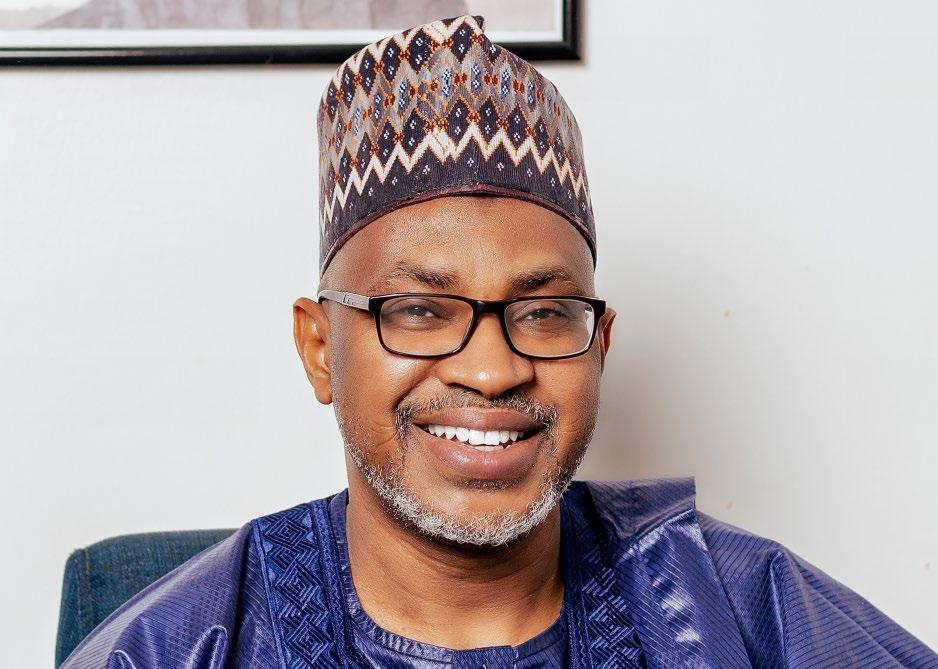
Dr. Walton Ekundayo Gilpin: Driving Economic Development through Exemplary Financial Management
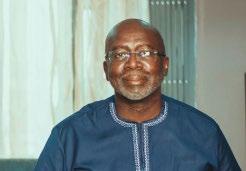
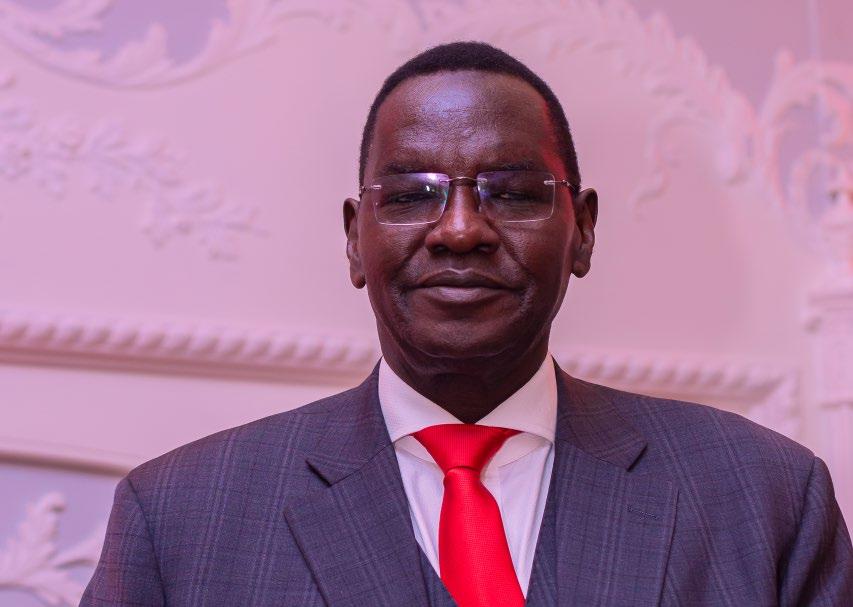
09 34
Henok Kebede: A financial Leader Par Excellence
50
A King for the people and with the people!
Tanzania Bureau of Standards: Activating Economic Growth Drivers
40 57
63 20 66
Rindra Hasimbelo Rabarinirinarison: A Catalyst for Economic Growth, Recovery, and Development in Madagascar
“It is always an honour to be in the company of such distinguished fellow Africans, that the African Leadership Magazine events bring together - Africans who have committed their lives to changing the negative narrative about our continent.”
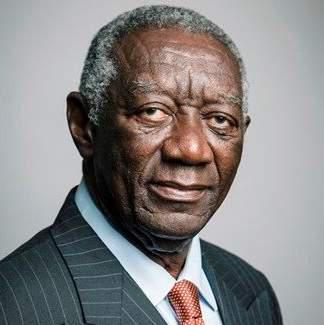
“It is ver y gratifying that we now have an organization like African Leadership Magazine, which endeavors to promote good governance and impactful leadership in Africa - bring the best of Africa to the global stages.”

“African Leadership Magazine has become a brand for Africa and I am pleased to be associated with it. especially because of the caliber of African Leaders on itʼs board.”
“I wish to express my sincere thanks and deep appreciation to the African Leadership Magazine for the work that it is doing on the continent, and especially in advancing the cause of small Islands Developing states, Any effor t aimed at increasing the visibility of the good work being done by leadership in Africa does positively impact on the continent and that is what the African Leadership Magazine is doing.”
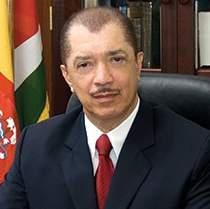
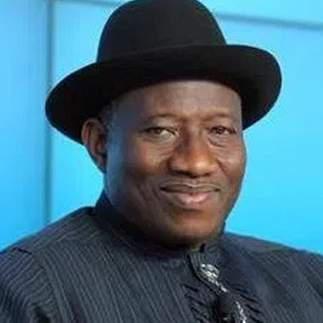
“I am delighted to be associated with the sterling work that the African Leadership Magazine is doing on the continent. Democratic governance is the elephant in the room, and the continent needs to reaccess its governance systems. The agenda on global sustainable development shows that Africans are lagging behind. Africa will need to reinvent its governance system with its youth growing population.”
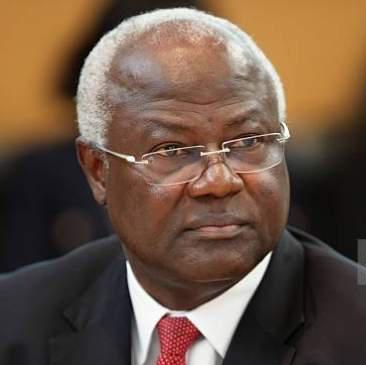
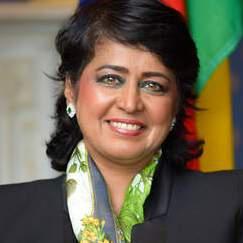 H.E. JOHN MAHAMA Fmr. President of Ghana
H.E. MRS. AMEEN GURIB-FAKIM Fmr. President of Mauritius
H.E. JAMES A MICHEL Fmr. President of Seychelles
H.E. ERNEST BAI KOROMA Fmr. President of Sierra Leone
DR. GOODLUCK JONATHAN Fmr. President of Nigeria
H.E. JOHN MAHAMA Fmr. President of Ghana
H.E. MRS. AMEEN GURIB-FAKIM Fmr. President of Mauritius
H.E. JAMES A MICHEL Fmr. President of Seychelles
H.E. ERNEST BAI KOROMA Fmr. President of Sierra Leone
DR. GOODLUCK JONATHAN Fmr. President of Nigeria
“I believe people are more impor tant than power and anything that promotes good people and leadership is what we need in Africa, and that is what African Leadership Magazine is doing.”H.E. JOHN KUFOUR Fmr. President of Ghana
“I feel deeply honored to be associated with the African Leadership Magazine as it is a veritable platform to honor true ser vice in Africa. I commend your effor ts and assure you of my continued suppor t and the suppor t of the good people of Liberia.”
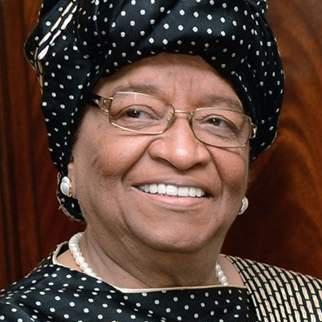
“African Leadership Magazine is doing a wonderful job of speaking for Africa and Africans. The magazine remain a good example of what young people in Africa can do in the world. Best wishes in keeping the African dream alive.”
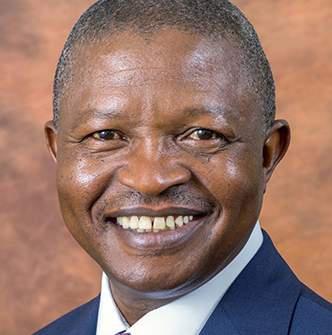
“It is an honour to par ticipate at this African Leadership Magazine's 2020 Ceremony, and I commend the magazine's focus to reshape positively, the dominant narratives about the African continent, especially towards the pursuit of peace-building and democracy on the continent”
“I thank you so much, African Leadership Magazine for the great work that you are doing for the continent. Your tradition of awarding excellence as I have seen in the line up of African Leaders who have received the African Leadership Awards, is something ver y commendable”
“ The future of African people and improving the quality of Leadership on the African continent is my vision and I find in African Leadership Magazine - a true par tner. I am also happy that the African Leadership Awards is doing at a lower level, what I intend to achieve at the Head of State level. That is why I flew to Paris just to be a par t of what you are doing here at the African Leadership Magazine”
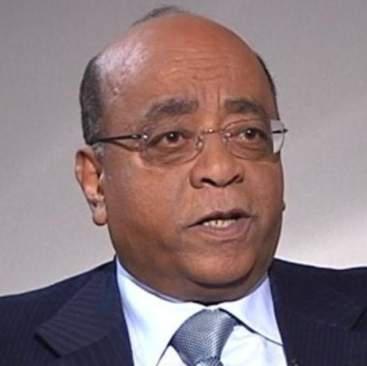
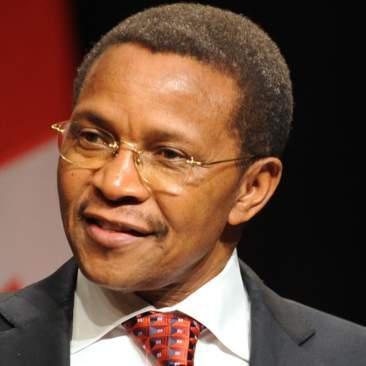
“ The African Leadership Awards truly captures the essence of my message which is that, success shouldnʼt be solely defined by wealth. It should be about the positive impact and influence that one has had in his community ”
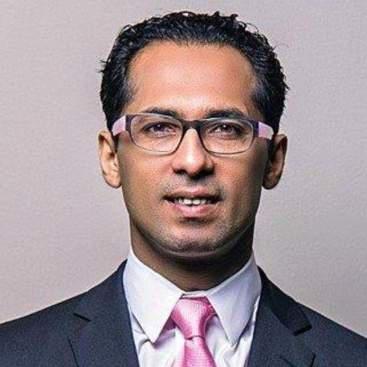
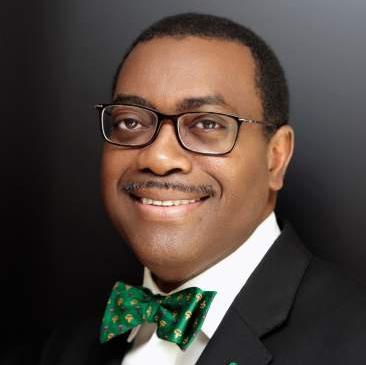

 by Peter Burdin
by Peter Burdin
These three words of advice were given to the new President of the World Bank Group, Ajay Banga, by his predecessor, David Malpass, when he assumed the position.
It’s easy to see the wisdom of these three words as the global economy faces recession and inflation after the pandemic, a climate emergency, and a food and energy crisis following Russia’s invasion of Ukraine, which also threatens global security.
In Africa, all these challenges are felt intensely. We can add to that list the problem of deepening debt, which is crippling many of Africa’s economies, poverty, which holds back development, and a coming population explosion as urgent crises to be tackled.
All these challenges require immediate responses, so it’s no wonder that the advice that “time is short” will drive President Ajay Banga’s first policy decisions as World Bank President. And it’s no wonder that he’s determined to hit the ground running.
On his first day on the job, he sent a memo to his almost 19,000 staff, warning them that decades of hard-won progress by the Bank are now threatened with erosion. He told them that his vision is “to create a world free from poverty on a livable Planet.”
“We are at a critical moment in the arc of humanity and the planet. The World Bank Group is being asked to lead the way, to double down on development and climate efforts, and to deliver even more impact and results.”
He told them that his vision is “to create a world free from poverty on a livable planet: “The Bank’s challenge is clear: it must pursue both climate adaptation and mitigation, it must reach out to lower-income countries without turning its back on middle-income countries, it must think globally but recognize national and regional needs.”
The question now is: where does Africa fit into this mission? He’s already asked his staff to “double down” on development and the climate emergency. That alone should put the continent at the top of his “to-do” list. After all, the climate emergency is already being felt more acutely in Africa than anywhere else on the planet, with extreme weather conditions already bringing droughts, floods, and crop failures, resulting in food insecurity for millions.
In his memo to staff, he estimated that annual investments of trillions of dollars are needed to address global warming. Mr. Banga has also pledged to scale up the Bank’s lending to address food security and future pandemic preparedness, along with building up human capital, fighting inequality and poverty, protecting the environment, promoting global conversation, and delivering long-term solutions to all these challenges. Again, Africa would be a good place to start tackling these issues.
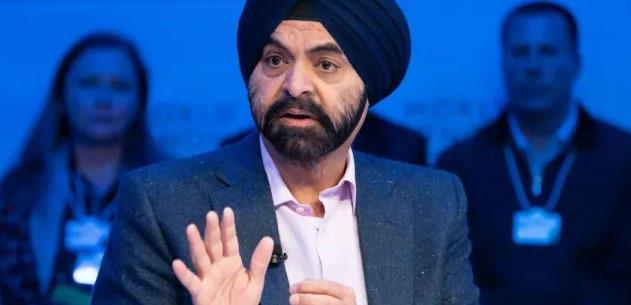
The World Bank is already well aware of Africa’s needs. A recent Bank Report estimated that almost half of the countries in Sub-Saharan Africa are either already in debt distress or at high risk of falling into debt distress. Zambia defaulted on its debt in 2020, followed by Ghana last year.
Ghana is a prime example of what Mr. Banga calls the need for long-term solutions to support growth in its economy to pay off its debt. The Bank aims to improve Ghana’s investment climate so that its economic stability will attract more foreign direct investment. Ghana stands ready to receive $300 million from the World Bank, dependent on Ghana’s government’s ability to adopt the Bank’s proposed reform package.
Meanwhile, the Bank’s 2023 Economic Outlook for Africa reveals that although growth across the continent is expected to be 3.1% this year, inflation is much higher and is in double digits in many parts of the continent.
Last week, the Bank’s Africa chief economist, Andrew Dabalen, said that the continent was falling into a form of stagflation with low growth and high inflation.
To address this crisis, the Bank has already announced a $12 billion package to provide lending and grants to the poorest and weakest economies, many of them in Africa. Another tranche of funding is due to be pledged this December for the Bank’s crisis response window, along with further resources that will be made available in early 2024.
Africa has traditionally benefited from the World Bank’s International Development Association (IDA), which exists to help the world’s poorest countries and reduce poverty by providing zero- to low-interest loans or credits for programs that boost economic growth, reduce inequalities, and improve people’s living conditions.
Last year, the IDA’s commitments totalled approximately $37.7 billion, with African countries receiving almost three-quarters of that. It includes funding for climate change, gender and development, conflict resolution, job creation, and economic transformation in fragile states.
In the words of the President of Niger, Mohamed Bazoum: “IDA is a priority for many African countries, mine included. We turn to IDA for our development agenda.”
President Macky Sall of Senegal also believes in the importance of the Bank’s IDA: “It is an extremely important instrument for African countries and for developing nations as a whole because of the types of loans that are made available to our states.”
The evidence of the IDA’s work is apparent across the continent. In Ethiopia, the Bank is supporting the national plan through a $375 million IDA credit, which is helping to bring electricity to a million homes and piloting new approaches for off-grid solutions.
Many of the IDA’s projects now focus on climate adaptation to address the climate crisis. In thirteen countries in West Africa, the Bank’s Agricultural Productivity Program is helping develop climate-smart varieties of crops like rice, bananas, plantain, and maize. It’s estimated that around 70% of Africa’s farmers are women, and agriculture remains the continent’s largest employment sector by far. That means the World Bank also prioritizes female empowerment as a key policy objective to achieve gender equality across the continent.
For example, the Bank supports a project in the Sahel to give local women access to sexual and reproductive health services for more than 200,000 girls across Burkina Faso, Chad, Cote d’Ivoire, and Mali. Mauritania and Niger have benefited from new schooling opportunities. In Togo, during the height of the pandemic, some 400,000 women were given cash transfers to provide financial support when jobs were drying up.
The Bank sees gender equality as a surefire route out of poverty in Africa.
However, Mr. Banga acknowledges that all these gains could be eroded if Africa is not at peace. That’s why the IDA is also working in the continent’s conflict areas, such as the Sahel, Lake Chad, and the Horn of Africa, to support
refugee populations. Peace building requires good governance and stable employment.
Unemployment and abject poverty encourage young people to join terrorist gangs and militias engaged in conflict.
In Burkina Faso, the Bank supports national government efforts to strengthen municipal capacity-building in thirteen regions, while in CAR, a cash-for-work program serves as a peace-building initiative to promote social cohesion and economic activity, supporting more than 41,000 vulnerable individuals to secure jobs and address the growing gaps in health, education, and resilience.
In the Republic of Congo, this means empowering thousands of young people with skills training for jobs in mechanics, carpentry, hospitality, electricity, plumbing, baking, and welding.
The scale of the challenges is enormous. The Bank estimates that during the COVID-19 pandemic, approximately 97 million people fell back into poverty as jobs were lost and economies stalled. The IDA’s Jobs and Economic Transformation Agenda aims to restore these lost livelihoods by adopting digital technology, expanding broadband access, investing in agriculture and food security, and delivering sustainable infrastructure.
A good example is Togo, where 14,000 young people have received micro-entrepreneurship training and start-up grants to establish their own businesses.
As a former CEO of Mastercard, Mr. Banga is a technocrat who emphasizes the role of technology in addressing the world’s challenges. He also emphasizes the role of the private sector
The World Bank is already well aware of Africa’s needs. A recent Bank Report estimated that almost half of the countries in Sub-Saharan Africa are either already in debt distress or are at high risk of falling into debt distress. Zambia defaulted on its debt in 2020, followed by Ghana last year.
in mobilizing capital resources for significant economic development and leveraging private sector ingenuity and innovation.
Mr. Banga was born in Pune, India, and attended Delhi University, where he earned a Bachelor’s degree in Economics. He later graduated from the Indian Institute of Management in Ahmedabad. In 2007, he became a U.S. citizen and worked at Nestle and Citigroup before serving as the Chief Executive of Mastercard for 11 years.
In addition to his role at the World Bank, Mr. Banga has held various positions, including serving on the boards of Kraft Foods and the American Red Cross. He was also involved in the launch of PepsiCo’s restaurant and fastfood franchise chain in India.
Mr. Banga was elected unopposed for a fiveyear term as World Bank President by the Bank’s Board of Governors in May 2023, following his nomination by U.S. President Joe Biden. There is little doubt that the World Bank has helped hundreds of millions of people escape poverty by creating jobs and providing access to clean water, better roads, electricity, and improved nutrition. However, the question remains whether this support is sufficient for Mr. Banga to transform the continent’s fortunes. And let us not forget the words of his predecessor: “Time is short,” which continue to resonate.
He leads a team of almost 19,000 staff and consultants in 120 offices worldwide and oversees an investment chest of $440 billion. The challenges of rising debt and the climate emergency are urgent crises, and Mr. Banga needs to tackle them immediately before they worsen.
The World Bank’s mission has become even more urgent due to Russia’s invasion of Ukraine. While it may seem distant from Africa, the war’s impact is already being felt across the continent, resulting in disruptions to food and energy supplies.
Within the continent itself, Russia’s attempts to foster conflict and undermine democracy in Africa through the use of private mercenaries from the Wagner Group are also disrupting efforts to build stable and peaceful societies. Russia’s invasion, the bombing of civilians, and the kidnapping of Ukrainian children have already disrupted the World Bank’s support for Africa. Many donors have chosen to prioritize funding for Ukraine. This year, direct funding support to sub-Saharan Africa has fallen by 8%, while funding to Ukraine has grown by the same amount.
This means fewer resources to tackle Africa’s problems, and in the short term, the energy and food insecurity in the wake of the Russian invasion have increased hunger and poverty in Africa, along with reducing funding for programs fighting inequality in health, education, and future pandemic preparedness. It also places Africa at the receiving end of a new scramble for Africa, as U.S. hegemony in the world is increasingly challenged by a range of actors seeking to create a “new world order.” Russia supports anti-western movements across the continent, from the Sahel in the west to the Horn of Africa in the east. Meanwhile, U.S.-China rivalries threaten to make Africa a battleground for a new emerging and growing superpower rivalry.
The World Bank risks getting caught up in these new political crosscurrents. It has traditionally been seen as advocating for a pro-Western American free-market ideology, which is itself being challenged.
China and other emerging economies have sought to establish alternative institutions to provide a competing source of financing to the developing world. More may emerge on these attempts to establish a so-called BRICS Bank when the BRICS nations of Brazil, Russia, India, China, and South Africa gather in Pretoria later this year. Some commentators see an opportunity for Africa in this challenge to the existing world order. They see Africa as capable of benefiting from the new superpower rivalry between the U.S. and China by leveraging the competition between them. However, others believe that such rivalries can only lead to further global instability, which will threaten inward investment into the continent, and Africa’s development and poverty eradication aspirations will be the ultimate loser.
As Mr. Banga sifts through his bulging in-tray of these urgent challenges, he will surely reflect on his predecessor’s words that “Time is short.”
To address this crisis, the Bank has already announced a $12 billion package to provide lending and grants to the poorest and weakest economies, many of them in Africa







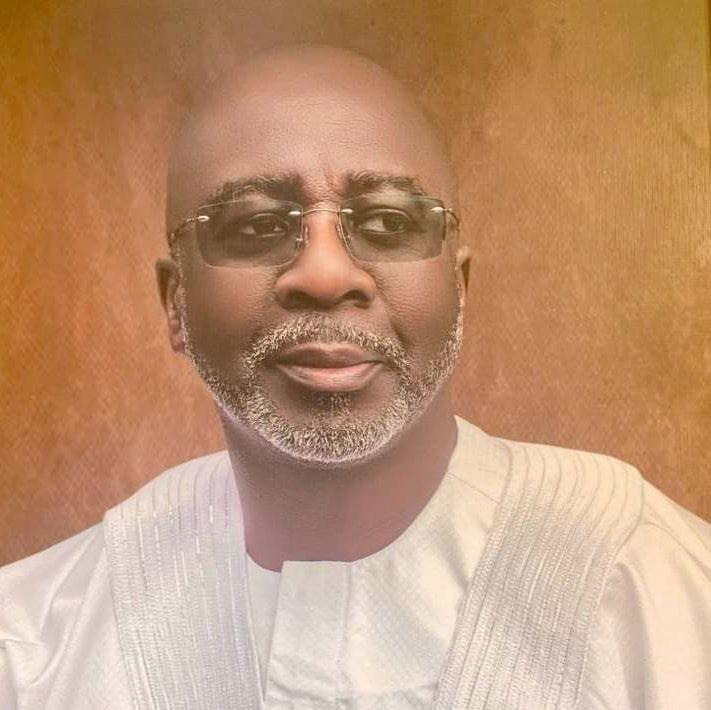 The Deputy Speaker of the Liberian House of Representatives
The Deputy Speaker of the Liberian House of Representatives
Honorable Cllr. Jonathan Fonati Koffa has proven himself to be a distinguished lawmaker, not only in the parliament but also throughout the West African country of Liberia. He has become a beacon of hope for marginalized sections of the population by challenging harmful African traditions. His diligent efforts to eradicate the practice of Female Genital Mutilation in Liberia have been commendable. Additionally, he has been at the forefront of increasing women’s representation in the country. Recently, the respected lawmaker had an interview with a team from the African Leadership Magazine UK, where he discussed his personal and career choices that have led him to his current position.
Some analysts argue that the parliament presents the greatest opportunity to truly represent and serve the citizens of any country. What inspired you to become a parliamentarian, and what motivates you to continue serving the Liberian people?
Early in my political career, when I left law school and decided to return to Liberia, the legislature became a point of interest. As a lawmaker, you are the first line of defense for citizens, even though you have constitutional requirements that involve lawmaking and oversight functions. Interacting with citizens on a personal level allows you to engage in community work, and the more you do that, the more fulfilling it becomes.
You have had an impressive career as a lawyer, anti-corruption crusader, and human rights defender. How have these experiences shaped your entry into politics and governance?
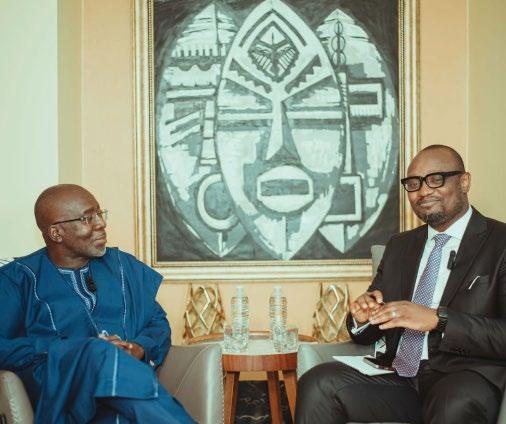
These experiences have influenced the issues I focus on. As a lawyer, I have been exposed to cases that involve marginalized lives and underrepresented individuals. In our society, where women are the majority, we need to ensure that as we progress into a civilized democracy, there is a deliberate effort to embrace equality. Regardless of gender, tribe, education, or social status, all citizens should have equal opportunities.
The true test of democracy in any country lies in the parliament’s ability to hold the
government accountable to the people. How have you contributed to ensuring that the current government remains answerable to the Liberian people?
That is an excellent question. It is a continuous struggle because the executive often resists what they perceive as “intrusion,” but what we consider as “oversight.” We conduct legislative hearings where we summon heads of parastatals to the legislature. We also visit agencies and corporations to ensure the implementation of approved laws. We address issues related to unfair labor practices and complaints. Additionally, we oversee budget allocations to ensure that the executive branch spends in line with approved budgets.
As Deputy Speaker of the Liberian Parliament, what are some of the key legislative initiatives you are currently working on, and what impact do you hope they will have on the Liberian people?
Currently, our major focus is on changing the rules to record our votes for transparency. By having recorded votes, the public can assess how and when we voted on financial bills or other controversial laws. This will prevent any future disputes regarding the passage of
certain laws. Another important initiative is the upcoming decision on renewing a concession related to the control of infrastructure, specifically the rail. These are significant items on my legislative agenda as we approach the end of the session in this election year.
Your landmark Gender Bill has garnered attention both locally and globally. Could you provide more information about the Bill and how it will address pressing gender issues in Liberia?

The Gender Bill is a result of collective efforts. It gained support from the president, vice president, and leaders who believed it was the right time for such legislation. Despite facing opposition from some male members who argued that the 30% gender parity bill was unconstitutional, we pushed forward.
Affirmative action is necessary to counter historical oppression and underrepresentation of women in politics. Passing this bill was a culmination of backroom negotiations and engagement with various stakeholders, and it marks a significant step towards achieving gender equality in Liberia.
As a prominent figure promoting democracy, human rights, and good governance in Liberia and beyond, what do you believe can be done to deepen democracy across the sub-region and the continent as a whole?
Unfortunately, there is no quick fix for this issue. We need to focus on improving the healthcare system and education, raising literacy rates, and ensuring that our population understands the essence of democracy. People should exercise their voting rights responsibly and hold lawmakers accountable for upholding laws and working in the best interests of the citizens. Strengthening human capacity and promoting awareness of democracy will be key factors in fostering a robust democratic system.
Constituency outreach and engagement are crucial aspects of parliamentarian responsibilities. Could you share some of your constituency projects and their impact on your constituents?
Every year, we hold an event in April where we inform our citizens about the achievements of the previous year. However, due to the upcoming elections, we will combine this event with election-related activities. Additionally, we ensure that citizens from our constituency who visit Monrovia receive necessary government services. We also proactively reach out to constituents, addressing their needs in areas such as healthcare, education, and social welfare. We have a district office with coordinators assigned to each district, enabling us to effectively engage and assist our citizens.
Finally, what message would you like to convey to the people of Liberia and the international community
As a lawmaker, you are the first line of defense for citizens, even though you have constitutional requirements that involve lawmaking and oversight functions.
regarding the future of Liberia and the importance of democracy, human rights, and good governance?

I believe Liberia will demonstrate, as it has during previous by-elections, that the upcoming January election will be critical. We anticipate a relatively violence-free election with active participation and vigorous electoral challenges. As democracy strengthens within society, more individuals aspire to participate in the political process. It is essential that voters base their decisions on candidates’ qualifications and capabilities, rather than short-term incentives like rice or gifts. To protect democracy, we need lawmakers who possess the necessary capacity and can effectively balance power with the executive branch. Building human capacity and promoting understanding of democracy will be crucial for Liberia’s future.
In July this year, you will participate in the Africa Summit at the House of Lords, a significant platform for engagement
and discourse in Africa. What are your expectations and thoughts regarding your engagement as a legislator?
One aspect that excites me about this engagement is the opportunity to connect with other African legislators and exchange experiences on constituency work. Building connections beyond Liberia will broaden my understanding. For instance, in the United States, money plays a significant role in politics, shaping presentation and public perception. In contrast, in Liberia, politicians often rely on giving gifts like rice or t-shirts to secure votes. By meeting legislators from other African countries and established democracies, I hope to gain valuable insights and contribute to a larger perspective. This will be an exciting time in London.
Honorable Cllr. Jonathan Fonati Koffa’s extraordinary commitment to Liberia, both as a parliamentarian and a community service personality, is breaking barriers and changing lives as he continues his indomitable quest to empower the voiceless and make life more meaningful for those who were previously in hopeless situations. That’s why many describe him as a beacon of progress illuminating Liberia’s path. In the realm of Liberian politics and public service, Honorable Cllr. Jonathan Fonati Koffa stands as a towering symbol of dedication, progress, and unwavering commitment to his constituents.
Serving as the Deputy Speaker of the 54th National Legislature of the Republic
of Liberia, he has made remarkable strides in various critical areas, including parliamentary affairs, community service, education, and infrastructure development. The aim of this article is to shed light on some of the numerous achievements of Honorable Cllr. Jonathan Fonati Koffa and showcase his profound commitment to the nation and its people.
Parliamentary Triumphs: As the Deputy Speaker of the House of Representatives, Honorable Cllr. Jonathan Fonati Koffa has exhibited exemplary leadership and a strong determination to represent the best interests of the people. He has played a pivotal role in enacting and modifying crucial bills, such as the Domestic Violence
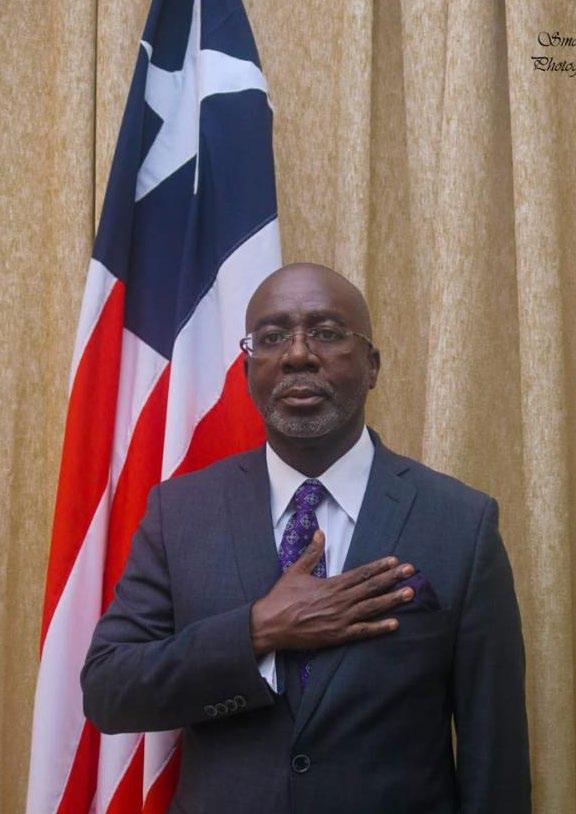
Bill and the Female Genital Mutilation Bill. These legislative measures aim to safeguard women’s rights and promote gender equality within Liberian society.
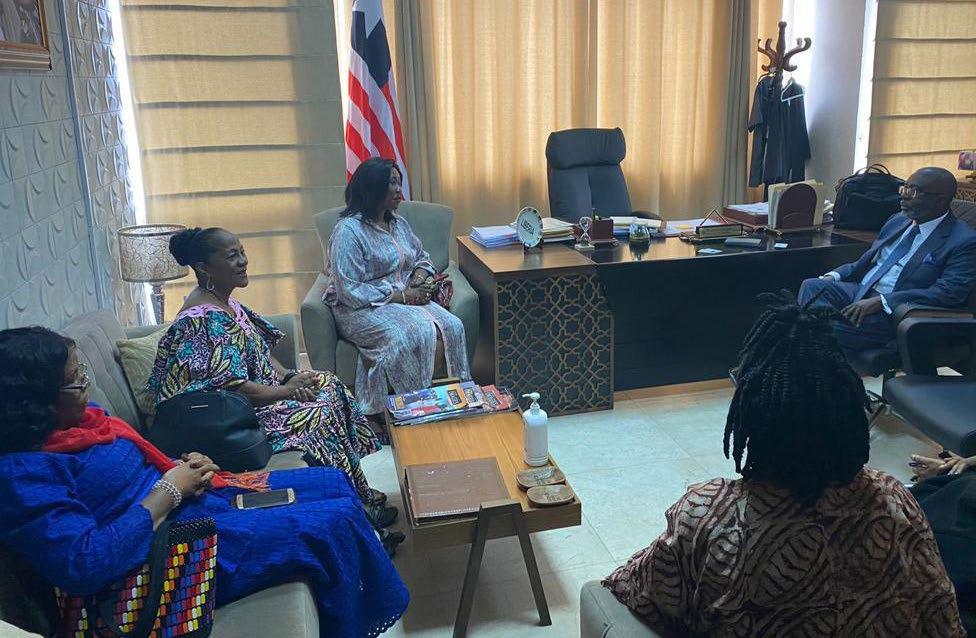
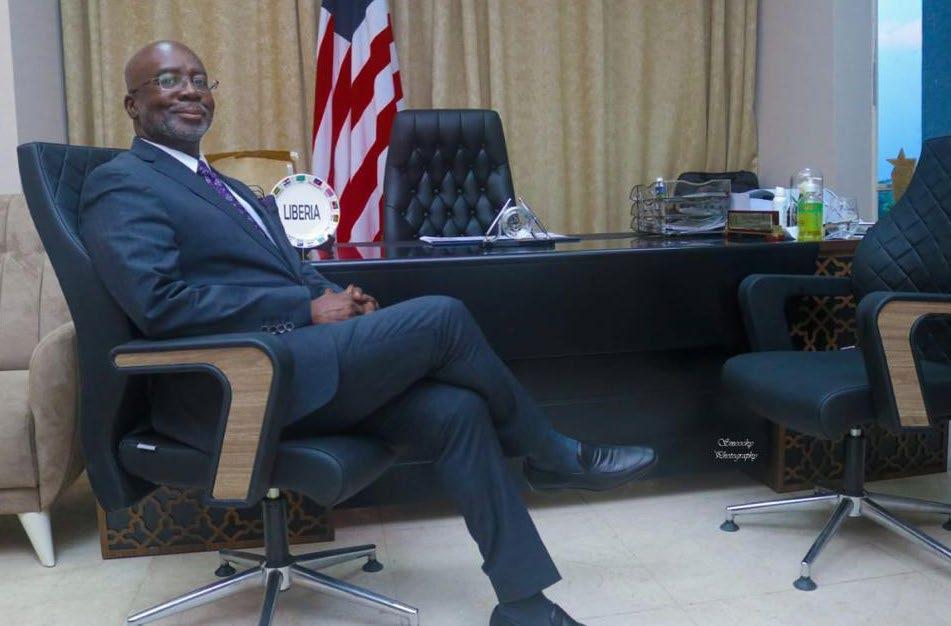
Community Service and Altruism: Beyond his parliamentary responsibilities, Honorable Cllr. Jonathan Fonati Koffa has consistently demonstrated unwavering dedication to serving his constituents and improving their lives. Through his philanthropic endeavors, he has been a beacon of hope for many Liberians, offering financial aid to those in need and providing educational scholarships. Currently, he supports over 1,734 students through full scholarships or financial aid. His benevolence has touched the lives of numerous individuals and families, leaving a lasting positive impact on their well-being.
Infrastructure Advancements:
Recognizing the vital role of infrastructure in fostering socio-economic growth, Honorable Cllr. Jonathan Fonati Koffa has made significant contributions toward providing essential amenities to communities in Liberia. He has spearheaded initiatives to bring electricity and clean water to underserved areas, ensuring that residents have access to fundamental necessities for a better quality of life. Additionally, he has constructed 17 hand pumps, two health clinics, and two radio stations. He has also contributed to the renovation of youth town halls, churches, and mosques, and has been instrumental in the construction of over 5 miles of roads. His efforts have enhanced living conditions and driven development at the grassroots level.
Recognition and Accolades: The dedication and commitment of Honorable Cllr. Jonathan Fonati Koffa to public service have garnered well-deserved recognition. The regional United Nations Women Ambassador for Africa, Madam Jaha Dukureh, commended the parliamentarian for being a major player in the Liberian parliament and for championing bills that protect and preserve the dignity of women. Reputation Poll International, a global reputation firm, named him among the “100 Most Reputable Africans” of 2023. This acknowledgment stands as a testament to his integrity, influence, and visibility in bringing about positive change in Liberia. Additionally, he has been honored as the Representative of the Year 2022, reflecting his impactful and relatable leadership style. Furthermore, he has been invited to speak at the African Business Leaders Summit in Dorchester, London.
Extraordinary Journey: Throughout his career as a public servant, Honorable Cllr. Jonathan Fonati Koffa has achieved remarkable milestones and pursued progress tirelessly. His contributions to parliament, community service, education, and infrastructure development have established him as a major champion of Liberia and its people. Through his unyielding commitment to improving lives and championing noble causes, he has emerged as a true leader and a source of inspiration for many. Many believe that Liberia owes a debt of gratitude to Honorable Cllr. Jonathan Fonati Koffa for his exceptional service, and his legacy will continue to shine brightly in the annals of Liberian history.
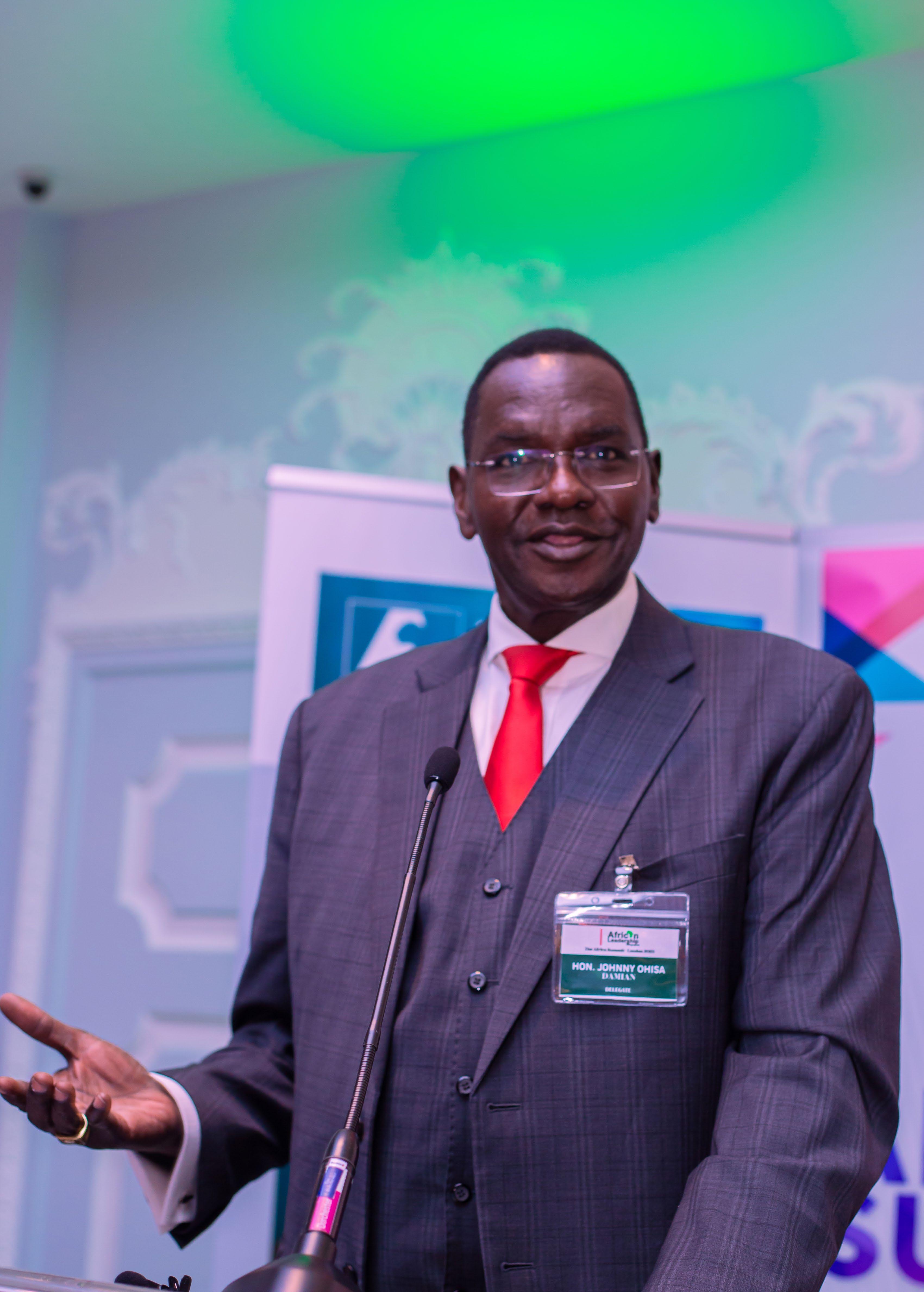
Hon. Johnny Ohisa Damian is the Governor of the Bank of South Sudan. He has served in various capacities within the Central Bank of South Sudan from 2019 to 2021, notably as the Director General for Currency and Banking Operations and as the first Deputy Governor and acting Governor, before his appointment as Governor of the Central Bank. Before joining the Bank of South Sudan, he was the Deputy Managing Director and later Managing Director (MD) of the International Commercial Bank (ICB-SS). The Governor also worked in various capacities at the United States Agency for International Development (USAID) in Sudan, Kenya, and the Democratic Republic of Congo (DRC).
Under the leadership of Governor Damian, the Bank of South Sudan has engendered reforms and coordinated sound monetary policies aimed at inspiring confidence in the country’s banking sector, fostering a strong and efficient financial sector, and promoting economic stability and financial inclusivity for the benefit of the South Sudanese people. The Governor has also ensured the formulation and implementation of policies and programs to spur sustainable economic growth across all sectors and segments of society.
In this interview with the African Leadership Magazine, Governor Damian discusses the ongoing economic reforms in the country, as well as the efforts of the Bank of South Sudan in strengthening the regulatory environment to ensure a robust and efficient banking and financial services sector. Excerpts.

You have been renowned for strengthening the country’s banking regulatory environment with the introduction of a Risk-based supervision approach. What has been the impact of this measure in strengthening the nation’s banking and financial system?
The implementation of the best international practices of risk-based supervision to safeguard the integrity, prosperity, and trust in our nascent financial and banking system is one of BoSS’s priorities. Implementing RBS has helped strengthen the regulatory environment by focusing on high-risk customers and institutions during supervision. The banking supervision staff at the Bank of South Sudan has received extensive training on the Risk-Based Supervisory Approach from international and regional partners such as the International Monetary Fund (IMF) and sister central banks, especially in the East African region.
BoSS is also closely collaborating with the Financial Action Task Force (FATF), which it recently joined, to enhance ALM/CFT in the banking industry and eventually remove the country from the grey list. The impact of RBS has enabled the management of BoSS to revoke the licenses of two (2) local banks for failing to meet the required threshold, and the entire Board of Directors and Managing Director of our largest local bank were dismissed due to issues related to corporate governance.
As part of the reform agenda, the BoSS played a pivotal role in the establishment of the Financial Intelligence Unit (FIU), an independent body that provides oversight on the overall financial system.
There have been reports of banking reforms to be implemented by the Bank of South Sudan, particularly to address the undercapitalization of the banking sector. Could you tell us more about this and its impact on the economy?
Undercapitalization, specifically for some local banks, remains a real threat to South Sudan’s economy. In February 2020, the management of the Bank of South Sudan decided to raise the minimum paid-up capital for all domestic and foreign banks to the equivalent of 5 billion South Sudanese pounds (SSP), from 15 million dollars to 30 million dollars. However, the value of this amount was undermined by the COVID-19 pandemic and persistent inflationary pressures.
We critically assessed undercapitalized banks and gave them an ultimatum to merge, divest shareholders, voluntarily liquidate, or face force liquidation. They have been directed to submit their Capital
Restoration and Liquidity Plans to the Bank of South Sudan. In addition, we licensed strong banks to fill the gap. After taking these measures, we have seen a sharp increase in private sector credit, which has had a positive impact on South Sudan’s economy.
You have been pushing for the dedollarization of South Sudan’s economy to curb dollar speculation, improve the value of the local currency, and lower the cost of living. How successful do you expect this agenda to be by the end of the year?

Since independence in 2011, dollarization has been a serious policy concern for the Bank of South Sudan (BoSS). South Sudan, being a landlocked and import-dependent economy, has been characterized as a highly dollarized economy. A large proportion of South Sudanese and foreigners carry out transactions in U.S. Dollars, despite it not being legal tender. The extensive use of the US dollar in economic activities has been and continues to be a major concern for us at the Central Bank due to reasons such as the vulnerability of the banking system to exchange rate fluctuations, a volatile exchange market, loss of seigniorage, and the loss of confidence in the domestic currency among economic agents. In an attempt to curb the dollarization of the economy, which also affects other regional currencies
due to the global recession and the Federal Reserve Bank’s interest rate hikes, the Bank of South Sudan issued a circular reinforcing the use of the South Sudanese Pound as legal tender in all transactions within the country’s jurisdiction.
What are some of the policies of the Bank of South Sudan aimed at promoting financial inclusion in the country?
The Government of the Republic of South Sudan is serious and committed to implementing policies and programs aimed at sustainable economic growth across all sectors and segments of society. Promoting and deepening financial inclusion is one of the enablers of economic growth. Empirical evidence suggests that financial inclusion is crucial for sustainable economic development. According to the Global Finance Index 2021, “76 percent of people worldwide have an account either at a bank or similarly regulated deposit-taking financial institution, including a mobile money service provider.” However, South Sudan’s financial inclusion remains as low as 6 percent, compared to 66 percent in Uganda. This is a major concern for the Bank of South Sudan. To address this gap, we explore all options and possibilities that enhance financial inclusion.
In 2017, we developed electronic money regulations and have licensed four digital money providers as it has become a major driver of financial inclusion in the East African Community (EAC), especially for women. We have embarked on the modernization of our payment system to further enhance this endeavor. Additionally, the World Bank is providing financial and technical support to the Bank of South Sudan through the “Strengthening the Financial Sector in South Sudan” project, which will run until 2027.
Within the project, there is a component dedicated to financial inclusion, and the Bank has already initiated consultations with stakeholders to develop a comprehensive national financial inclusion strategy. To achieve this goal, the Bank will work with all stakeholders, including seeking accession to the Alliance for Financial Inclusion (AFI) to benefit from their expertise.
Small and medium-sized enterprises (SMEs) play a vital role in South Sudan’s economy, accounting for about 93 percent of all registered firms. Are there economic measures taken by the Bank of South Sudan to foster the growth and development of SMEs, especially in the agricultural sector?
The Bank of South Sudan’s monetary and banking policies encourage commercial banks to extend credit to the private sector, including the agricultural sector, which employs about 80 percent of the labor force. We have directed banks to increase Private Sector Credit (PSC) to SMEs by 40 percent for 2023. These policies, coupled with the liberalization of the exchange rate, have had a significant impact on the increase in PSC credit. The commercial banks’ loan portfolios used to be around 8 percent of total deposits, but during the first quarter of 2023, it reached more than double that figure, at 18 percent.
The Bank is also collaborating with the Ministry of Finance and Planning to ensure that the Agricultural Bank of South Sudan is fully capitalized to fulfill its mandate. This will enhance the bank’s liquidity position and enable it to provide financing to the agriculture sector at affordable interest rates, especially for small-scale rural farmers.
The Bank of South Sudan has submitted amendments to the Establishment Act of 2011 and the Banking Act of 2012 to Parliament, enabling the Bank to develop regulatory
frameworks for microfinance and other nonbank institutions.
Following the conclusion of the first strategic plan of your bank (2018 – 2022), you have now implemented the 2022 –2027 strategic plan. Could you tell us what the current plan entails and what it aims to achieve? Also, how would you rate the effectiveness of the 2018 – 2022 strategic plan?
The current strategic plan for the Bank of South Sudan (2022 – 2027) is designed to guide the bank’s actions and initiatives towards achieving its overarching goals. This plan encompasses several key elements, including:
Financial Stability: The plan aims to enhance the stability of the financial sector in South Sudan by implementing robust regulatory frameworks, strengthening risk management practices, and promoting prudent banking operations.
Economic Growth and Development: The strategic plan emphasizes the bank’s commitment to supporting sustainable economic growth and development in the country. This includes fostering a conducive business environment, promoting investment, and facilitating access to financial services for all segments of society.
Monetary Policy and Exchange Rate Stability:
The plan emphasizes the importance of implementing effective monetary policy measures to maintain price stability and ensure a stable exchange rate. This entails managing inflationary pressures, monitoring foreign exchange reserves, and promoting a transparent and well-functioning foreign exchange market.
Financial Inclusion: The strategic plan places significant emphasis on enhancing financial inclusion in South Sudan. The bank aims
Implementing RBS has helped strengthen the regulatory environment by focusing on highrisk customers and institutions during supervision.
to increase access to financial services, particularly for underserved populations, through initiatives such as promoting digital financial solutions, expanding the reach of banking services, and supporting the development of microfinance institutions.
Regarding the 2018-2022 strategic plan, I would rate it as a foundation for progress. It provided a roadmap for the bank’s activities during that period and set the stage for the current strategic plan. While there were undoubtedly challenges and unforeseen circumstances, the 2018-2022 plan laid the groundwork for important initiatives and achievements, such as strengthening the regulatory framework, enhancing financial stability, and promoting financial inclusion. It served as a stepping stone towards the bank’s current strategic objectives.
The Revised National Development Strategy for South Sudan (2021 – 2024) expresses national aspirations to transition from dependence on humanitarian aid to a development path. How would you describe the implementation of this strategy, and what are the contributions of the Bank of South Sudan towards achieving the objectives of this strategic plan?
The implementation of the Revised National Development Strategy (RNDS) for South Sudan (2021-2024) holds significant importance in transitioning the country from dependence on humanitarian aid to a development path. The revised National Development Strategy was prepared based on the premise that development can be pursued in complex emergency settings. As the Bank of South Sudan, we recognize the crucial role we play in supporting the objectives of this national development strategy.
Our contributions towards achieving the objectives of the strategy are not limited to the following actions:
Economic Coordination: We collaborate with relevant government ministries and agencies to ensure the alignment of monetary and fiscal policies with the objectives of the national development strategy. This coordination is crucial in creating an enabling environment for sustainable economic growth, attracting investments, and promoting job creation.
Financial Inclusion and Access to Finance: The Bank of South Sudan plays a pivotal role in promoting financial inclusion, which is a key component of the national development strategy. We take the lead in expanding access to financial services, particularly in rural and underserved areas, by supporting the establishment of microfinance institutions, encouraging the use of digital financial solutions, and implementing policies that facilitate inclusive economic participation.
Amending the Bank of South Sudan Establishment Act of 2011 and the Banking Act of 2012 to include developing the legal framework for the supervision of microfinance and other non-bank institutions.
You recently emerged as a co-winner of the African Central Bank Governor of the Year 2023. How does this make you feel?
I feel honored and humbled by the recognition. This acknowledgment recognizes the collective contribution of the staff of the Bank of South Sudan, who have worked tirelessly to support the overall objectives of ensuring that the reforms we are enacting translate into a strong and efficient financial sector. Additionally, such an award provides an opportunity to further promote sound monetary policies, economic stability, and financial inclusivity for the benefit of our economy and its people.
The current strategic plan for the Bank of South Sudan (2022 – 2027) is designed to guide the bank’s actions and initiatives towards achieving its overarching goals.

Professor Muhammad Bello Abubakar is a seasoned technocrat and the Managing Director/ Chief Executive Officer of Nigeria’s Galaxy Backbone Limited. He is a Professor of Petroleum Geosciences, with over two decades of working experience spanning academia, oil and gas exploration research, development, and innovation institutions. Professor Abubakar is a strategic thinker with strong leadership and management skills and an impressive exposure to global best practices in the field of energy. Since assuming office in January 2020, Professor Muhammad Bello Abubakar has distinguished himself as an ICT expert.
Professor Abubakar’s innovativeness, pragmatism, transformational and exemplary leadership qualities, mentorship, and insightful solutions have positioned Galaxy Backbone Limited as one of the most impactful and value-driven government agencies in Nigeria. They are especially focused on ensuring that the organization achieves the goal of the Federal Government Digital Economy Policy in Nigeria. To fulfill their mandate, Galaxy has built a multi-platform ICT infrastructure connecting more than 400 Ministries, Departments, and agencies into a “one government” network platform known as 1-Gov.net. They are currently deploying terrestrial (Fibre) broadband connectivity to 30 states of the federation.
In an exclusive interview session with Ehis Ayere of the African Leadership Magazine,
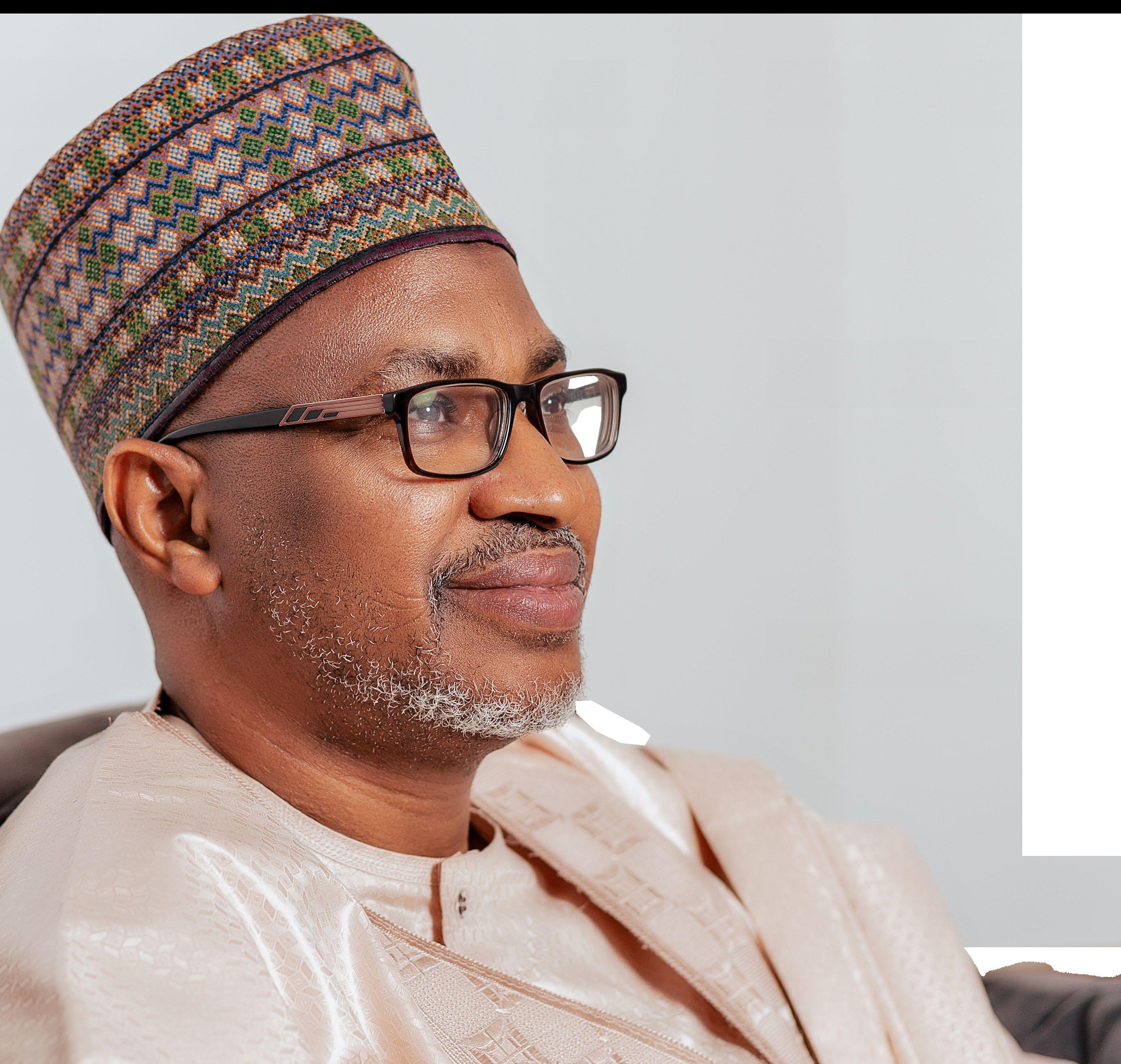 Professor Muhammad Bello Abubakar
Professor Muhammad Bello Abubakar
the Managing Director/Chief Executive Officer of Nigeria’s Galaxy Backbone Limited, Professor Muhammad Bello Abubakar, talks about the positive impact and contributions of the organization towards achieving the digital economy policy and strategic growth in Nigeria. Excerpts:

One of the mandates of Galaxy Backbone is to build and operate a single nationwide IP broadband network to provide network services to all Government MDAs and institutions in Nigeria. Could you kindly tell us more about the core activities of Galaxy Backbone and how the agency, under your leadership, has worked towards achieving its mission?
Galaxy Backbone (GBB) was established by the Federal Government of Nigeria in 2006 with the sole mandate of providing an IP network that drives ICT across the MDAs (Ministries, Agencies, and Departments) to ease the ways of doing business with the MDAs and achieve their mandate with agility. Another aspect is for GBB to develop or come up with what we call transversal applications. We are talking about applications like IPs (Internet Protocol) that are relevant to MDAs. For example, the government operates under the Treasury Single Account (TSA).
These are the kind of solutions that GBB provides, and governments have started using them even before the establishment of Galaxy Backbone. So, Galaxy Backbone, as an agency of the government, was established to collate and provide IP services to the MDAs. Moreover, we are currently in the fourth industrial revolution.
Our government had the foresight that the fourth industrial revolution would come. Thus, they established GBB to provide a common platform upon which the MDAs can thrive, as is obtainable worldwide. Prior to the establishment of GBB, different MDAs of the government operated on different platforms to cater to their ICT needs. The government envisioned how to integrate all the ICT platforms into a single platform that would provide all the ICT needs of the MDAs. By doing so, costs are saved, and the government’s interest is to reduce expenses. If each MDA operated independently, they would have to allocate a significant budget for their own ICT needs. However, with a shared platform providing storage, computing, and other related ICT services, MDAs can avoid the costs of installation and repairs. Another aspect is the data center.
When a data center is established, it is meant to provide 24/7 power and a cooling system to host all server systems. If MDAs decided to have their own data centers, they would incur not only the costs of installation and repairs but also maintenance expenses. Every year, they would allocate a budget for maintaining power, cooling, and other requirements. However, by centralizing the data centers, these costs are eliminated.
Every agency can utilize the center and benefit from the economy of scale. Therefore, by joining the center, agencies can reduce their expenses significantly. This is another major mandate of Galaxy Backbone (GBB).
Our mandate also includes cybersecurity. In the era of the fourth industrial revolution, data is considered invaluable.
In Nigeria, we even regard data as more valuable than black gold. Data is crucial for discovering oil reserves; it is better than black gold and even better than oil itself. Protecting
data is essential because it gives a nation sovereignty in the ICT world. Recent events between Ukraine and Russia highlight the importance of data protection. If Russia did not have control over its own data, the outcome of the conflict could have been different.
GBB’s role is to protect the government’s data and ensure it remains within our borders. We handle classified files and sensitive information that should only be accessible to authorized individuals. In the ICT world, where data resides in computers and the cloud, finding ways to secure the data is vital for national sovereignty.
Considering the launching of the National Digital Economy Policy and Strategy for a Digital Nigeria (NDEPS, 20202030), a strategic document that provides the blueprint for Nigeria’s transition to a digital economy, could you describe the implementation of this strategy and the contributions of Galaxy Backbone towards achieving the objectives of this strategic plan?
Yes, the NDEPS serves as a blueprint and policy document guiding our country’s evolution and participation in the global industrial revolution. It identifies eight pillars, with the third pillar focusing on providing solid infrastructure as the foundation for all other solutions. This is the major work of GBB. Our role is to provide the necessary infrastructure, and the government has invested significant funds to make this happen.
The National Shared Services Centre, where we are currently located, is part of the infrastructure to be provided. We are running a specific project in collaboration with the Korean Government called service. org, a platform that will bring all serviceproviding MDAs, such as the Federal Road Safety Corps and the Nigeria Customs Service, onto a unified platform. This platform will simplify the process of doing business in Nigeria, allowing individuals and organizations to access services, make payments, and obtain necessary certifications or licenses without having to physically visit various government offices. By integrating services and payments, we are streamlining the ease of doing business and attracting more foreign investments.
Additionally, we are working on a platform that will enable MDAs to have a highly agile ICT-based work plan. This platform will create a paperless work environment, enhancing e-governance and supporting the MDAs in meeting their mandates. Our goal is to make all government processes digital and eliminate the need for physical paperwork. By accomplishing these initiatives, we aim to make the NDEPS objectives a reality.
Regarding GBB’s investments in capacity and local content development, could you provide further details?
Our investment in local content is primarily focused on infrastructure. We are looking into enhancing start-ups by providing funding for infrastructure alongside their solutions. Start-ups often require financial support to build the necessary infrastructure in addition to developing their solutions. Therefore, we encourage start-ups to collaborate with us, leverage our existing infrastructure, and reduce their costs. We have substantially reduced the expenses associated with developing local content for MDAs by providing the required infrastructure. Furthermore, we contribute to social responsibility initiatives through our annual budget, which also supports the development of local content.
Considering the increased cyber threats faced by public portals, with an average of 1,550,000 daily attacks, and the significant financial losses due to cybercrime, what efforts has Galaxy Backbone made to enhance its capacity and ensure a secure cyberspace in Nigeria?
Our security operation center has been instrumental in addressing cyber threats. We have implemented extensive measures to safeguard websites and portals of different MDAs.
The establishment of our security operation center has been instrumental in addressing cyber threats. We have implemented extensive measures to safeguard websites and portals of different MDAs. Our security operation center has effectively blocked malicious emails and protected MDAs from cyber attacks. Cybersecurity requires continuous monitoring and upgrades, as hackers constantly develop new methods. We have collaborated with world-class agencies focused on global cybersecurity to stay ahead of threats. Approximately 60% of our resources at Galaxy Backbone are dedicated to cybersecurity. We are committed to protecting government data and ensuring that unauthorized parties cannot access it.
Research shows that only about 12.1% of the Nigerian population enjoys quality internet services. What efforts and achievements has Galaxy Backbone made in providing improved connectivity and service delivery in the country?

As I mentioned earlier, our efforts to improve connectivity and service delivery have revolved around providing the backbone infrastructure.
We have already provided backbone connectivity to approximately 13 states, including fiber optics, which is currently the fastest means of communication technologically. For example, the Federal Road Safety Corps relies on our connectivity to provide licenses throughout the country.
We are also expanding our services to the private sector, encouraging collaboration and partnerships to reduce costs and enhance services.
During the COVID-19 pandemic, we provided essential connectivity to ensure the government could continue its operations. Galaxy Backbone has played a significant role in supporting government business, such as enabling virtual meetings for the Federal Executive Council. Our aim is to make services accessible, improve the quality of connectivity, and ultimately reduce costs for citizens.
Do you have plans to extend your services to private individuals, homes, and businesses?
Yes, we have already begun extending our services to the private sector. We actively call on the private sector to partner and collaborate with us. We provide the necessary infrastructure, allowing private organizations to leverage our resources and reduce their costs.
Through our Enterprise Business Group, we support the private sector by offering connectivity and services. We are also focusing on providing services to estates through our e-connect initiative. Our goal is to empower the private sector while ensuring that everyone benefits from the shared infrastructure provided by the government. By collaborating and partnering, private organizations can reach their customers more efficiently and offer
services at a reduced price. This will create more opportunities for the private sector to develop innovative solutions.
The President of the African Development Bank, Dr. Akinwumi Adesina, stated that Africa’s digital economy is expected to surpass $712 billion by 2050. As a stakeholder in the sector, what are your thoughts on the pathways towards achieving this feat?
This is an important question. I attended the event where Dr. Akinwumi Adesina made that statement. It is not new to me, and we have already started considering the best ways to achieve it. We are currently working on the service.org platform in collaboration with the Korean Government. This platform will bring together service-providing MDAs onto a unified platform, simplifying the process of doing business in Nigeria. Instead of navigating various government offices
and facing bottlenecks, individuals and businesses can access all services and make payments through the platform. We are also working on another platform that will enable MDAs to have a highly agile ICTbased work plan. By creating a paperless work environment, we aim to enhance e-governance and make government processes more efficient. These initiatives will significantly contribute to achieving the growth projected by Dr. Akinwumi Adesina.
Considering that Nigeria’s tech ecosystem attracted approximately $4.4 billion in investment between 2015 and 2020 and the digital economy contributed about 18.5% to the country’s GDP, how would you rate the regulatory environment of the ICT industry?
I believe that the current regulatory environment has performed exceptionally well. The ICT sector’s contribution to the GDP demonstrates the effectiveness of the regulations in place. However, regulations should not remain static. As the environment and circumstances change, regulations should adapt accordingly. The Start-Up Act, a bill initiated by regulatory bodies, will support Nigerian youths in the sector and foster innovation. Nigeria’s youthful population possesses immense talent, and providing them with the right environment and opportunities is crucial. The regulatory environment must continue to evolve to accommodate growth and address emerging challenges.
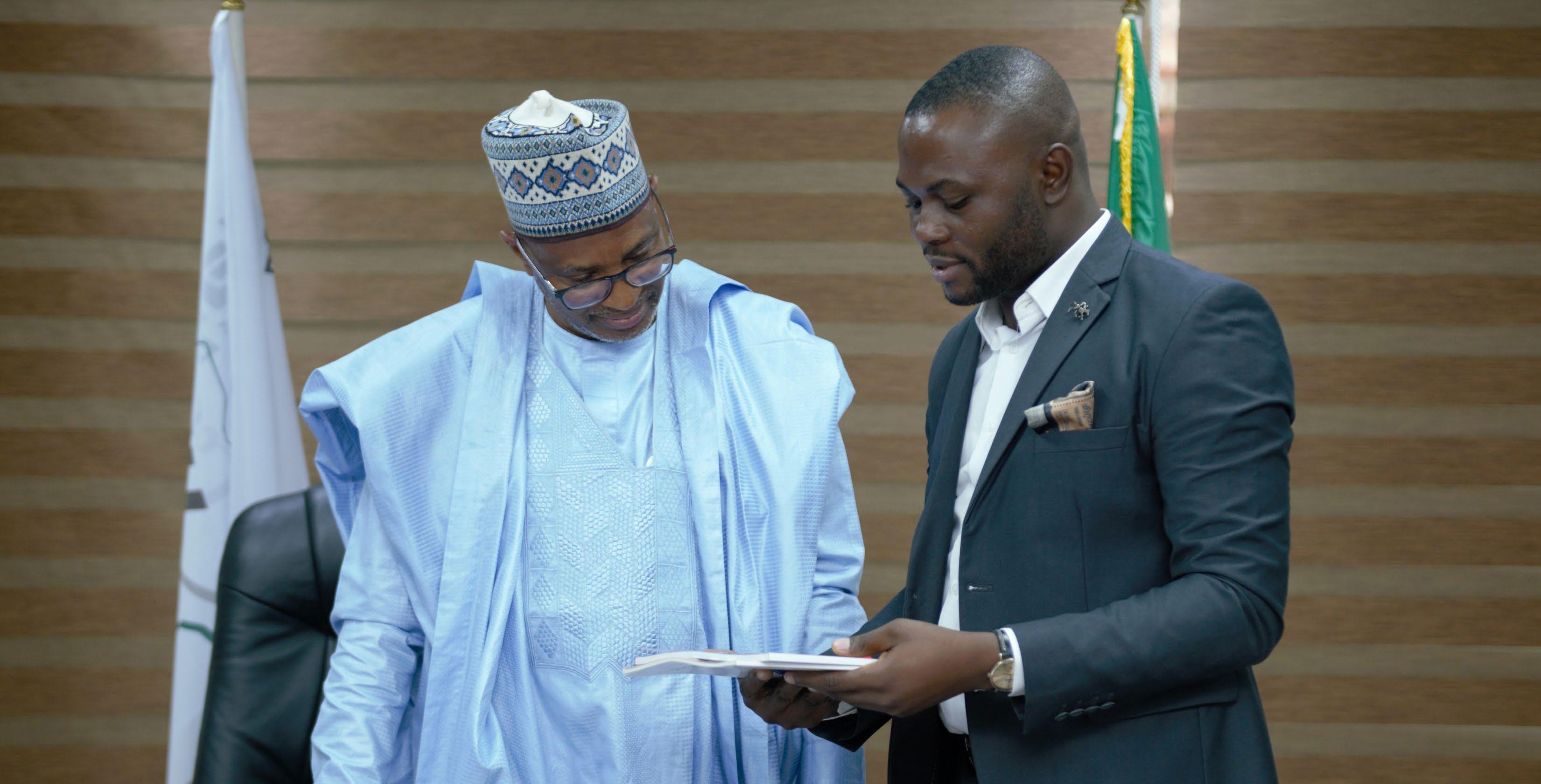
Our investment in local content is primarily focused on infrastructure. We are looking into enhancing start-ups by providing funding for infrastructure alongside their solutions.

African Leadership Magazine (ALM) is thrilled to announce the winners of the 13th edition of the prestigious African Business Leadership Awards (ABLA) 2023, following the completion of the 3-step points-based selection process that included a call for nomination, the ABLA online poll which ended on 20 May 2023, and the ALM editorial board’s final review of the vote entries and supporting evidence.
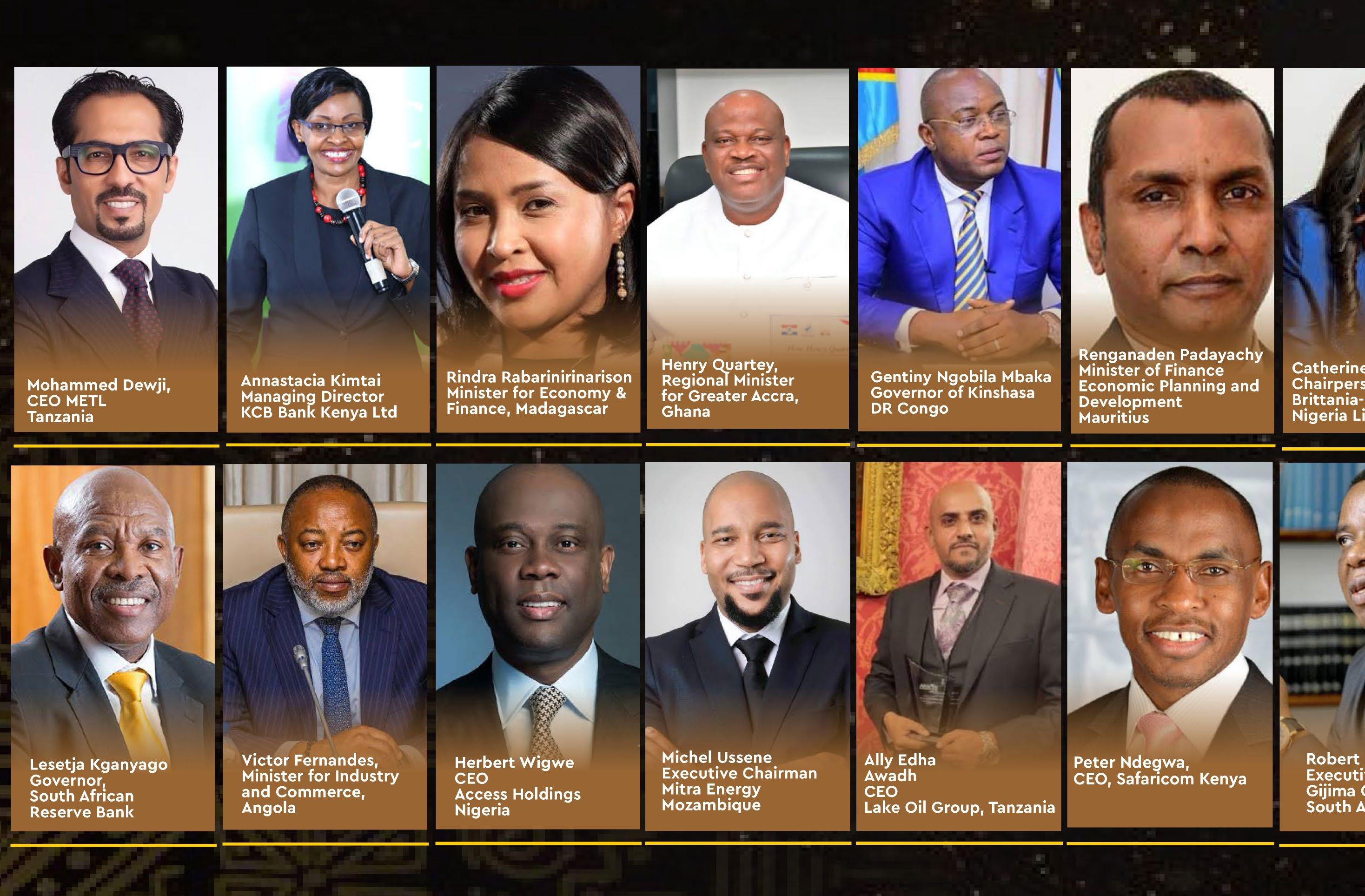
The winners and runners-up for the African Business Leadership Awards (ABLA) 2023 shall be presented with the award trophies and formally decorated with their instruments of honour at the African Business Leadership Awards (ABLA) presentation ceremony, a highlight of the 8th edition of The Africa Summit 2023, scheduled to hold on July 10th – 11th, 2023
at the House of Lords of the United Kingdom and The Dorchester Hotel London United Kingdom.
The publisher of the African Leadership Magazine, Ken Giami, during the ALM editorial board’s review, noted that the African Business Leadership Awards (ABLA) is part of the magazine’s “focus on promoting Afro-positive content and bringing the best of Africa to global audiences and platforms “. He added that “these winners are good examples of progressive and transformational business and policy leadership on the continent, and the accomplishments and successes of these leaders are vivid indicators of the resilience and diverse investment opportunities and successes possible on the continent.
AFRICAN BUSINESS LEADER OF THE YEAR
Mohammed Dewji, CEO METL- Winner
Yerim Sow, Founder, Teyliom Group, SenegalRunner-up
AFRICAN FEMALE BUSINESS LEADER OF THE YEAR
Annastacia Kimtai, Managing Director, KCB Bank Kenya Ltd- Winner
Kate Quartey–Papafio, Founder, Reroy Cables Ltd, Ghana- Runner-up
AFRICAN REGULATOR OF THE YEAR
Tanzania Bureau of Standards- Winner Food & Drugs Authority (FDA) Ghana- Runner-Up
TRADE & INVESTMENT PROMOTION AGENCY OF THE YEAR
Economic Development Board of Madagascar (EDBM) – Winner
Botswana Investment and Trade Centre (BITC) –Runner-up
CENTRAL BANK GOVERNOR OF THE YEAR
Lesetja Kganyago, Governor, South African Reserve Bank- Winner
Johnny Ohisa Damian, Governor, Bank of South Sudan- Runner-up
TRADE & INVESTMENT MINISTER OF THE YEAR
Victor Fernandes, Minister for Industry and Commerce, Angola- Winner
Naadir Hassan, Minister for Finance, Economic Planning & Trade, Seychelles-Runner-up
AFRICAN CEO OF THE YEAR
Herbert Wigwe, CEO, Access Holdings NigeriaWinner
Sebastião Gaspar Martins, CEO, Sonangol, AngolaRunner-up
YOUNG BUSINESS LEADER OF THE YEAR
Michel Ussene, Executive Chairman, Mitra Energy, Mozambique- Winner
Ismeal Cisse, Founder/CEO, Sirius Capital, Cote d’Ivoire- Runner-up
YOUNG AFRICAN ENERGY LEADER OF THE YEAR
Ally Edha Awadh, CEO, Lake Oil Group, Tanzania – Winner
INDUSTRY PERSONALITY OF THE YEAR
Peter Ndegwa, CEO, Safaricom Kenya- Winner Sebastien Kadio-Morokro, CEO, Pétro IvoireRunner-up
AFRICA CSR & COMMUNITY DEVELOPMENT IMPACT AWARD
Standard Chartered Bank Uganda Limited- Jointwinner
Air Peace Nigeria- Joint-winner
Nigeria Liquefied Natural Gas (NLNG) LimitedRunner-up
AFRICAN BRAND OF THE YEAR
Dangote Group, Nigeria- Winner Kasapreko Company Limited, Ghana- Runner-up
AFRICAN COMPANY OF THE YEAR
Zambia National Commercial Bank (ZANACO)Winner
Tanzania Portland Cement Plc- Runner-up
AFRICA BUSINESS INTEGRITY LEADER AWARD
Maroc Telecom, Morocco- Winner Absa Bank Botswana- Runner-up
LIFETIME ACHIEVEMENT AWARD
Dr. Papa Kwesi Nduom, Chairman, Groupe Nduom, Ghana
Robert Gumede, Executive Chairman, Gijima Group, South Africa
Taiwo Afolabi, Founder & Chairman, SIFAX Group, Nigeria
Catherine Uju Ifejika, Chairperson/CEO, Brittania-U Nigeria Limited
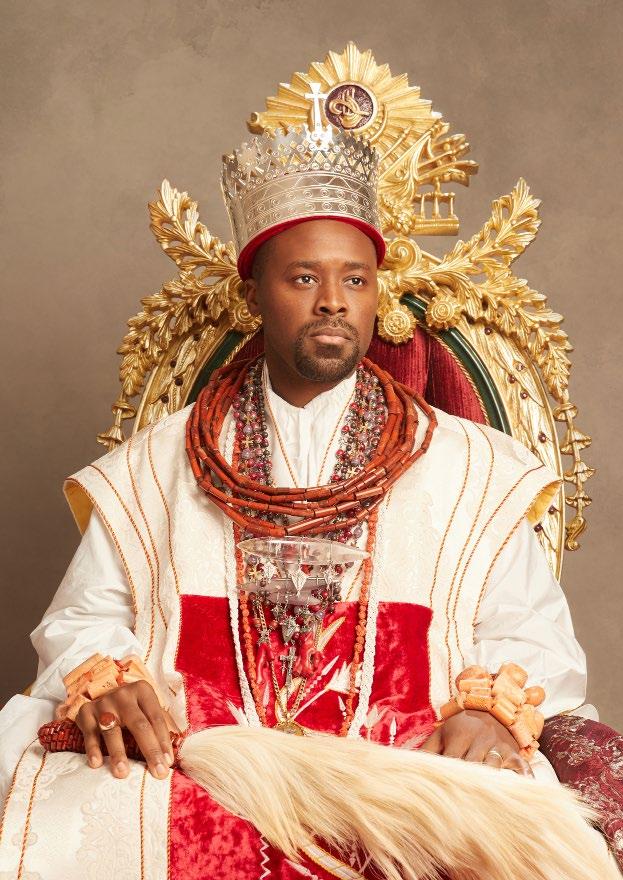
His Majesty Ògíamẹ̀ Atúwàtse III, CFR, is a cultural diplomat, promoting the interests of the Kingdom and the country. He is also a business icon, an innovator, and an affirmed exemplar for the institution of contemporary, human-centered leadership. He steers his people towards a revived stature of their unique culture, to the admiration of people across the globe.
He is distinguished by a catalogue of many divinely aligned twenty-firsts. The 21st Olú of Warri ascended the throne of his forefathers on the 21st day of August 2021, making him the youngest Olú in over 500 years.
Also worth noting is the innovation in the sphere of cultural diplomacy, through which His Majesty Ògíamẹ̀ Atúwàtse III - The Olú of Warri, CFR, is speeding up touristic capital. This is exemplified in the branded cultural asset - Ghí ghò aghọ́fẹn. This initiative showcases the wealth of culture through cultural pageantry, mobilizing the people to participate in community service and building cohesion to deepen peace within the Kingdom and the Niger Delta region.
His Majesty Ògíamẹ̀ has become a dependable bridge whose friendship is being sought in royal courts across Africa. He has established renown for the throne and the people of Warri Kingdom around the world. This affirms how traditional institutions become significant development pillars through cultural collaboration and the revival of pride for the black man.
The above exemplifies that the quintessential marker of rulership is the quality of thought for creative solutions in leadership. It is characterized by a love of wisdom, intelligence, and reliability. This begins with right-doing for the people, manifesting in actions that show the connectedness of their earthly King to heavenly sovereignty.


Olori Atuwatse III is a visionary leader committed to making an impact through community empowerment, education, and mind transformation.
With a legal background from the London School of Economics and membership in professional organizations like CIARB Nigeria, Olori combines her entrepreneurial spirit and expertise to create value across various industries. She has successfully founded startups in the fashion and hospitality sectors and serves on the boards of the Wells Property Development Company, the Wells Carlton, and Wells Bakehouse.
Olori is constantly on the lookout for opportunities to create value through enterprise. Olori is also an avid lover of God, and her mission to transform lives extends through her ministry, where she helps people build their faith and identity by teaching them to hear God for themselves. In 2017, she founded Abba’s Jewels, a community of pioneering women who have collectively impacted communities through outreach and prison drives across Nigeria. Beyond enterprise and ministry, Olori has a passion for coaching young people and mentoring them at various learning phases with practical skills through education and vocational training.
As a mother whose heart longs for the establishment of the Warri Kingdom and the well-being of her people, Olori Atuwatse III has founded initiatives focused on promoting education, entrepreneurship, extensive maternity care, and child health in the kingdom under The Royal Iwere Foundation (RIF).
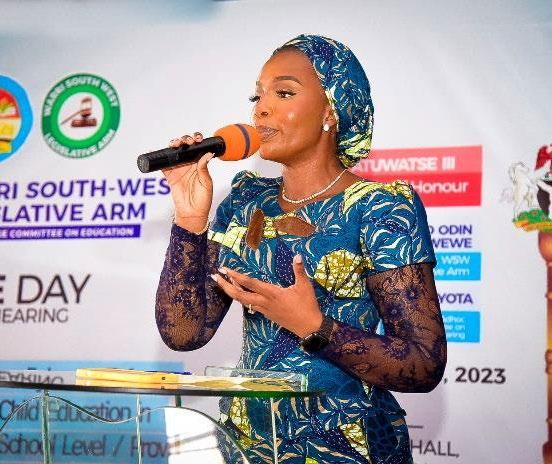
RIF is the chief project of Olori and Ogiame Atuwatse III, aiming to transform the socioeconomic conditions of indigenes through formal and informal education, mentorship programs, and funding for upcoming and fresh entrepreneurs.
Olori’s passion for quality education, human capital development, and her recognition of teaching as a noble profession and an integral aspect of nation-building have led to the launch of the Teacher’s Training Programme (TTP). Through TTP, teachers in the kingdom are trained on global best practices and encouraged to uphold the teaching profession with dignity. The TTP also recognizes high performers and seeks to improve the socio-economic welfare of its participants.
The Captain Idahosa Wells Okunbo STEM and Innovation Lab is another initiative by the Queen Consort in partnership with CleverMinds
Educational Foundation. This flagship center, located in Iyara Community, teaches orphans and indigent children in Warri and its environs to reach their full potential by exposing them to the innovative world of STEM-based quality education, entrepreneurial skills, and psychosocial support. Olori has also launched the Love Garden and eduplayground project, a program that plants gardens and playgrounds across public schools in the kingdom, providing children with the opportunity to learn about the wonders of agriculture while playing in a serene and well-equipped environment. From a tender age, the project teaches children the importance of the food economy and entrepreneurship, as well as soft skills such as patience, organization, and resourcefulness.

Olori Atuwatse III is also a strong advocate for quality education, with a particular emphasis on the education of the girl child. She believes that quality education should not be limited to the privileged few but should be a right for every child, regardless of their socio-economic status and gender.
The Queen Consort has endowed hundreds of children with scholarships and champions youth upskilling, character reformation, and self-leadership.
Olori champions early literacy and creativity through Storytime with Mama Iwere, an initiative close to her heart that teaches children core values and soft skills such as communication, curiosity, focus, and emotional intelligence. Storytime also doubles as a kids club, developing a love for the arts in children through drama and dance workshops.
Her passion for women’s empowerment led to the creation of the Royal Iwere Foundation Skills Institute (RIFSI), which aims to accelerate human capital development, empower women and youth cooperatives with seed funding in communities, and provide scholarships for indigent children.
RIFSI has organized several financial empowerment drives in collaboration with financial institutions, such as Point of Sales (POS) training and the distribution of POS machines, as well as mentorship programs for young business owners. Additionally, RIFSI supports agricultural research and empowerment schemes that aid local farmers. In March 2023, to commemorate
International Women’s Month, RIFSI sponsored the skilling of scores of women in the beauty industry and project management sub-industries.
Wuwu Ore, the medical arm of RIF, was founded in 2021 to provide free health, maternal and child care, and maternal education. It also aims to give all children in the Kingdom an identity. The quarterly community outreach has provided over 1,000 birth certificates for newborns and children to date.
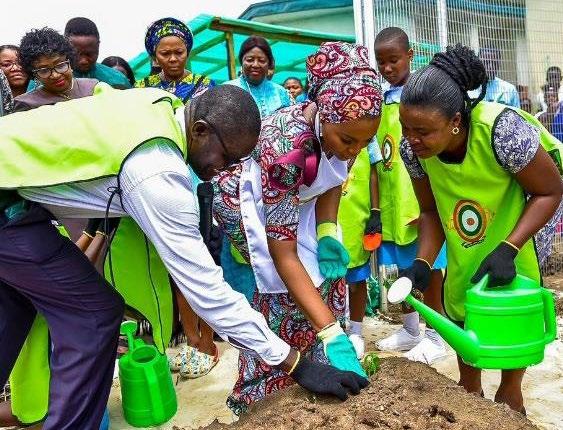
Beyond the borders of the Warri Kingdom, Olori Atuwatse III works with the Nigerian government on programs aimed at improving the lives of women. She is an appointed member of the High-Level Advisory Committee (HLAC) on Women’s Economic Empowerment and Gender in Nigeria, a committee set up by the Buhari Administration to effectively address issues regarding women’s empowerment across the country.
Olori Atuwatse III is frequently invited to share her insights and expertise on education and women’s empowerment on various platforms, both locally and globally. She has spoken at events such as the Lagos State Teachers Education Summit, the Warri Legislative Arm - House Committee on Education, The University of Oxford Saïd Business School, and several others.
For her outstanding contributions to humanity, Olori Atuwatse III has received recognition and awards, including the Peak Performing Queen of the Year Award, the Nigeria Magazine International Women’s Day Award, and the Prime Excellence Recognition Award.
As a builder at heart, Olori Atuwatse III is determined to leave a legacy of education and empowerment in the Warri Kingdom, Nigeria, and beyond.
One of her fervent statements encapsulates Olori’s resilient spirit: “Seeming failure does not disqualify you. It is just an indication that you’re going in the wrong direction and that it’s time to learn something new.”
She is happily married to her husband and king, His Royal Majesty, the Olu of Warri, Ogiame Atuwatse III CFR, and they are blessed with three children.

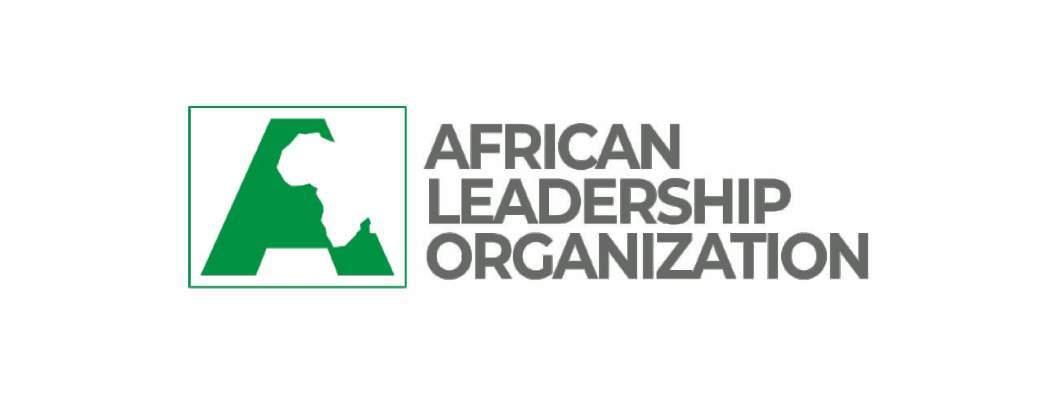
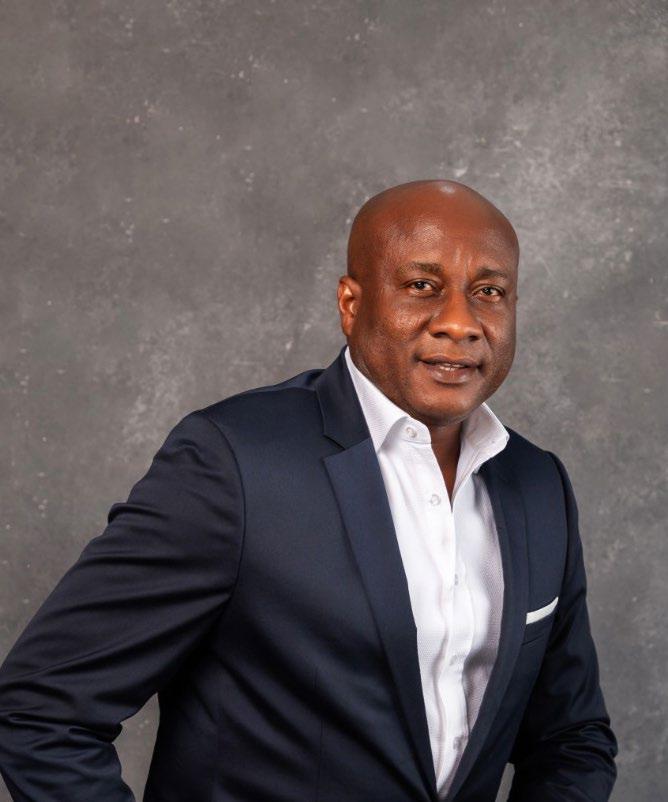
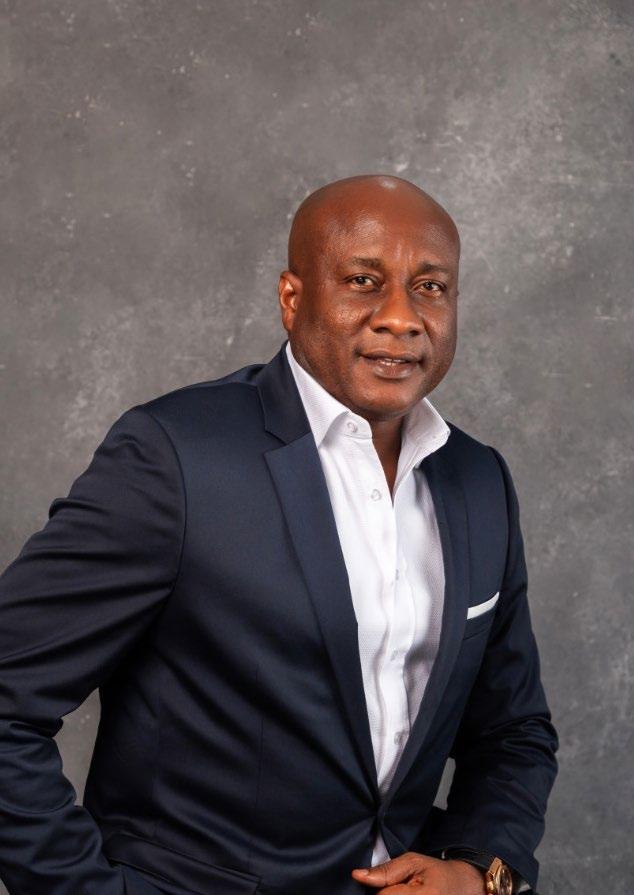
Barrister Allen Onyema is a pan-Nigerian and thoroughbred businessman with a strong nationalistic orientation. He has a profound interest in peace advocacy, youth empowerment, aviation, legal practice, and real estate investment. On March 28, 1964, Onyema, who hails from Mbosi in Ihiala, Anambra State, was born. He is a resultoriented and decisive conflict resolution veteran.
After completing his secondary school education, he pursued a Bachelor of Laws (LLB) at the prestigious University of Ibadan to give his gift of peace advocacy a professional touch.
During his time at the University of Ibadan, Onyema’s zeal for peace-building led him to lead a group of nine other students to Zaria to quell a religious and ethnic riot that claimed lives. Their success motivated them to establish the Eminent Friends’ Group, an organization dedicated to promoting ethnic harmony in Nigeria. While at the Nigerian Law School, Onyema combined his professional training with social activism aimed at fostering peace in Nigeria. He was called to the Bar in 1989 and started his legal practice at Nwizugbo & Company in 1990. He later established his own law firm, Onyema & Co., and a property firm, Allen Onyema & Company.
Despite his significant success in legal practice and business, Onyema felt a deep passion for peace advocacy, leading him to establish the Foundation for Ethnic Harmony in Nigeria (FEHN) as a platform to organize his peace efforts across the country.
In 2005, he invited Americans from the University of Rhode Island Center for Nonviolence and Peace Studies to train him and his staff in Nonviolence Conflict Management. He obtained Certificates in Nonviolence Conflict Management Levels 1, 2, and 3 from the same institution. Later, Onyema earned a Certificate in Nonviolence Leadership from Emory University in Atlanta, Georgia, USA.
When the Niger Delta militancy became a pressing issue, Onyema stepped up to the challenge. He risked his life by embarking on numerous peace missions in the troubled region and successfully trained over 30,000 Niger Delta militants without any clashes. Onyema has also provided funding for the Arewa Transformation and Empowerment
Initiative (ATEI), which aims to reorient youth of northern extraction.
He personally funded the first Nigeria Forever Project between 2004 and 2005, which was executed in all 36 states of the federation and achieved remarkable success.
In September 2017, Onyema invited Dr. Bernard Lafayette and his Nonviolence Education Team from the US to train agitators from Arewa, IPOB, and Oodua Peoples Congress (OPC) for five days in Lagos. After the training, the agitators reconciled their differences.
Onyema later sponsored almost seventy leaders of different groups who participated in the training’s second phase at Emory University in Atlanta, USA. He invested over N300 million in this endeavor. He also secured the hosting rights for the Global Conference on Nonviolence and Peace, held in Abuja from December 3-5, 2007, bringing recognition to Nigeria. Driven by his desire to create jobs, Onyema obtained an Air Operator’s Certificate (AOC) from the Nigerian Civil Aviation Authority (NCAA) in September 2014, allowing him to commence operations under the brand name Air Peace Limited (APL).
He has also undertaken numerous Corporate Social Responsibility (CSR) projects to uplift society. For example, he donated an entire police station building in Uli, Anambra State, to enhance security. In Yobe State, he donated relief items worth millions of naira to internally displaced persons.
For his impact on his community, he was conferred the title of Obata Obie Mbosi. In 2006, Africa News Magazine honored him with the Hope for Humanity Award. The following year, he received the Martin Luther King Jr. Global Award of Excellence for institutionalizing nonviolence education and culture in Nigeria and West Africa. In 2009, he was honored by the Mayor of Tuskegee in the United States with the city’s Honors Badge. In 2012, the Eminent Friends Group International (EFGI) presented him with the Pan Nigeria Nationalist Award.
Onyema’s peace advocacy led to his appointment to the Executive Board of the Global Nonviolence Conference Series Inc., USA, alongside notable world leaders such as Hon. Dr. Andrew Young and Suarez Ramos. This appointment, confirmed in April 2007,
made him the second African ever to join the Global Board.
He has also utilized sports as a tool for creating employment and fostering peace. Since 2010, Onyema has fully sponsored over 43 football teams in eastern Nigeria and built football pitches. He has made significant donations to the national teams. In 2021, he engineered a four-year sponsorship deal between Air Peace and the Nigerian Football Federation (NFF), with an initial investment of N300 million. In 2022, he honored specific Nigerian sports heroes with free flights for life and took on the responsibility of building a Wall of Fame for them. The same year, he announced a Priority Boarding Policy for Nigeria’s military officers, both serving and retired, as recognition of their sacrifices for the nation.
Onyema was listed by The Nation Newspapers as one of the 10 Most Outstanding Chief Executives in 2016. He has also been recognized by Nigeria’s Entrepreneurship Summit and Honors as one of the most impactful investors in the country.
For his inspirational leadership in the corporate world, he received an honorary
Doctor of Business Administration (DBA) from the Chukwuemeka Odumegwu Ojukwu University, Anambra State, in November 2018. In September 2019, Onyema further etched his name in history as he evacuated 503 Nigerians from South Africa amidst xenophobic attacks.
He has received numerous other awards for his impact in aviation and immense contributions to the socio-economic development of the nation, including The Voice of Women Lifetime Achievement Award, Philanthropist of the Year (2019 Pink Awards), Tourism Personality of the Year 2019 (Nigerian Tourism/Balerica Award), Star Award for Patriotism (Crime Reporters Association of Nigeria), Most Admired CEO 2020 (The Nigerian Business Leadership Awards - Business Day Newspaper), Exceptional Philanthropist of the Year (Sun Newspaper Awards 2020), University of Ibadan Alumnus of the Year 2021, Businessman of the Year (Independent Newspaper Awards 2021), Extraordinary Achievement Award (Silverbird Man of the Year Awards 2021), and the National Productivity Order of Merit (NPOM) Award 2022.
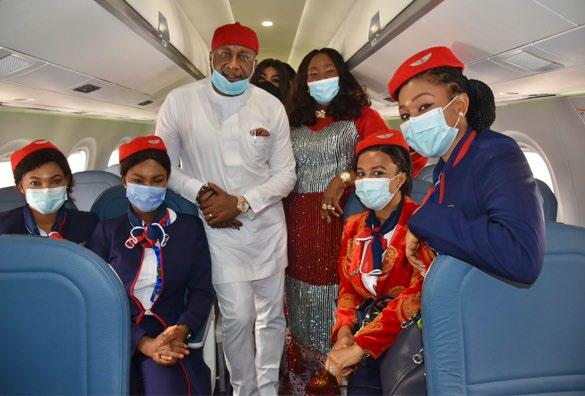
Air Peace Limited, Nigeria’s foremost airline, was launched on October 24, 2014, with a record of seven aircraft, including three state-of-the-art Dornier 328 and four Boeing 737-500 SP Jets. We envisioned becoming the top airline in the Nigerian aviation industry in a short span of time. In just six years of operation, we have surpassed our target and currently hold the position as the biggest airline in West and Central Africa, with a fleet size of approximately 25 aircraft.
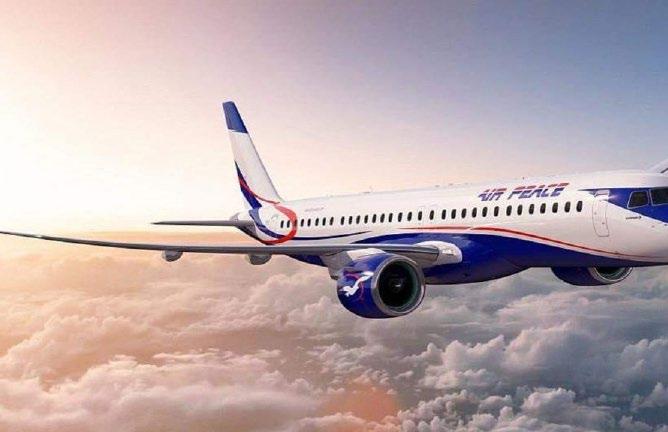
Our fleet expansion program has been strategic and executed based on our needs. We obtained the International Air Transport Association Operational Safety Audit (IOSA) certificate in 2017 and became a member of IATA shortly after. As a start-up airline, we were satisfied with our three Dornier 328 aircraft for charter purposes, while our four 114-seater Boeing 737-500 aircraft catered to the flying needs of our growing customer base. However, as demand quickly exceeded our fleet’s capacity, we upgraded to the 136-seater Boeing 737-300 aircraft, acquiring eight of them between 2015 and 2017.
In 2016, we also acquired another Boeing 737500 to support our operations. In response to the pleas of the flying public to expand our services to unserved and underserved domestic and regional routes, Air Peace procured six 50-seater Embraer 145 jets in 2018 under our subsidiary, Air Peace Hopper, to drive our ‘No-City-Left-Behind’ project.
From the beginning, Air Peace was determined to make a difference in the provision of flight services, especially on international routes.
Between 2018 and 2019, we acquired one Boeing 777-200ER and two Boeing 777-300 aircraft for our long-haul services, setting a domestic record as the first Nigerian airline to acquire the Boeing 777 and register it in the country. This achievement also allowed Air Peace to provide Nigeria with its first type certification on the Boeing 777.
On July 5, 2019, we launched our first international route, Dubai-Sharjah, as part of our expansion project to operate flights to more international destinations, including Johannesburg, Mumbai, London, Atlanta,
and Guangzhou, China. Air Peace operates from its main hub, the General Aviation Terminal of the Murtala Muhammed International Airport in Lagos. We reward loyal customers through our frequent flyer program, which offers the opportunity to earn points for future travel.
As of now, Air Peace has over 3,000 dedicated personnel, including some of the best flight crew in Nigeria, as well as ground and support staff, all driving our corporate vision. We are committed to expanding our locations both domestically and internationally, aiming to be the largest and most profitable airline that provides safe, efficient, and affordable short and long-haul flight services. Our mission is to create seamless connections and network options for our domestic, regional, and international markets, while guaranteeing quality on-time flight services at very affordable fares.
For maintenance and training, Air Peace partners with globally acclaimed firms

for line and base maintenance, engine maintenance, spares supply, and other technical services.
For further information, please contact us: Headquarters: 25, Sobo Arobiodu Street, GRA, Ikeja, Lagos, Nigeria.
Website: www.flyairpeace.com
Email: info@flyairpeace.com
Phone: +234-700-35924-773223
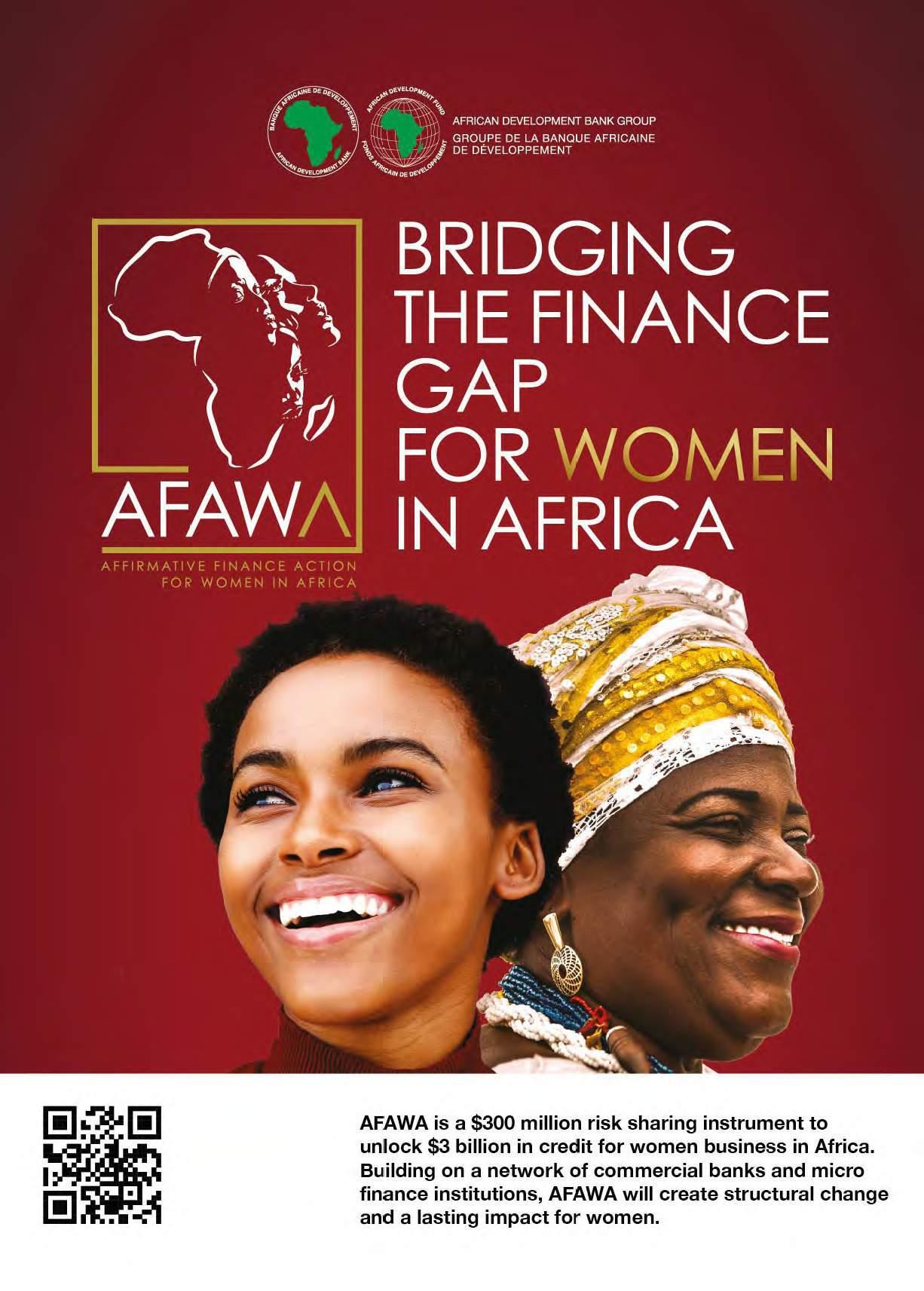
 By Omowumi Ajadi
By Omowumi Ajadi
The security of lives and property is a critical aspect of life, as important as life itself. Just as continents and countries grapple with external security issues, each continent also faces internal security challenges that can either enhance growth or hinder development.
In Africa, there are numerous security issues and threats that various nations on the continent are internally struggling with, which have hindered development in their respective countries and regions.
The focus of this article is to highlight these security challenges as they affect each region of the African continent and offer potential solutions to some of these issues.
Internal security for any nation involves ensuring peace within the borders of a state by upholding the laws and defending its territorial integrity. Governments often become overwhelmed by internal security threats, which can escalate the situation.
Despite the impressive growth recorded in the West African region, it is still plagued by security threats such as terrorism, religious extremism, electoral violence, civil unrest, and armed insurgency, leading to instability.
Different countries in the region have faced conflicts at various times. Countries like Liberia, Cote d’Ivoire, and Guinea Bissau have experienced conflicts in the past, and more recently, countries like Nigeria, Burkina Faso, Guinea, and Mali have been grappling with conflicts, many of which emanate from the Sahel region and have escalated in recent times.
For instance, Mali’s security threats index between 2007 and 2022, which includes bombings, mutinies, attacks, or acts of terrorism, averaged 8.06 index points, with a minimum of 4.8 index points in 2007 and a maximum of 9.7 index points in 2022.
This was 4.61 points higher than the world average of 5.09 index points in 2022, indicating a high level of security deterioration in Mali.
Most of these conflicts can be traced back to factors such as human rights violations and abuses, poverty, bad governance, corruption, and marginalization.
While individual countries make efforts to address and resolve these conflicts, regional bodies like the African Union (AU), Economic Community of West African States (ECOWAS), and other security groups have also been at the forefront of tackling these issues.
However, ending conflicts in the region requires governments to make concerted efforts to address the underlying factors that contribute to the conflicts.
Collaborative efforts among governments in the region and the citizens are crucial in protecting individual rights, fostering tolerance, and leveraging the strengths that unite the people.
This can be achieved through better management of electoral processes to produce credible leaders who can resonate with the citizens.
The East African region appears to be the most affected in terms of insecurity on the continent, resulting in fragility and the displacement of millions of people, with a significant number becoming refugees.
Terrorist groups such as Al-Shabaab and Al-Qaida are highly active in the region and have carried out numerous militant attacks in countries in Eastern Africa. The continuous recruitment of these groups raises concerns about how and when their activities can be halted.
The region also faces security threats from pastoral militias at both the interstate and intrastate levels.
Recent prominent conflicts in the region include conflicts in Ethiopia’s Tigray region and conflicts between Somalia and Kenya.
Like other regions, East Africa has various bodies and agencies working to ensure lasting security, such as the Intergovernmental Authority on Development (IGAD) and the East African Community (EAC). However, more needs to be done to achieve better results.
As a regional intergovernmental organization, the EAC should foster peace by collaborating with IGAD and other stakeholders to combat terrorism, the highest threat confronting the region. Authorities in the region should develop programs that meaningfully engage the people and distribute economic opportunities without marginalizing any group, as this can lead to various forms of agitation. Lessons should also be learned from past occurrences to ensure that the interests of refugees are not taken for granted, so they do not become tools for armed conflicts.
Since the popular uprisings of 2011 in the region known as the “Arab Springs,” North Africa has continued to experience
In Africa, there are numerous security issues and threats that various nations on the continent are internally struggling with, which have hindered development in their respective countries and regions.
increasing security challenges, primarily from terrorist jihadist groups affiliated with ISIL and AQIM. Migration effects towards Europe also pose threats.
Over time, conflicts between North African nations have exhibited a symbiotic relationship.
However, governments in the northern nations have treated these issues in isolation. To find lasting solutions, neighboring countries to the Middle East, due to their proximity to European shores, should deploy cooperation to achieve lasting peace and security.
Governments must be proactive in developing strategies to prevent the recurrence of past conflicts, while also considering the importance and proximity of the Sahel region to northern nations.
The Southern Africa region grapples with political differences and military threats, including disarmament, reintegration, the incomplete mobilization of former military personnel, and the presence of landmines. Instability has persisted in the region, with dire consequences for the lives and livelihoods of the people, despite efforts to resolve it.
For instance, data from the International Organization for Migration (IOM) shows that the Democratic Republic of the Congo (DRC) faces one of the most complex crises in the world as of 2023, with significant effects from displacement and human rights violations. This ongoing crisis has classified the DRC as a high-risk security-threatened country, ranking
158 out of 177 countries in the global security index for 2022, reaching the 10-point mark at some point.
To achieve stability and security in the DRC and other member countries of the Southern Region, governments must strive to remain neutral and not align themselves with any group or militia.
Collaborative efforts should be directed towards addressing the root causes of conflicts through dialogue and de-escalation of tensions among different groups.
In addition to the efforts of regional bodies like the Southern African Development Community, the African Union as a whole needs to intensify its peacekeeping initiatives in collaboration with other organizations to ensure that governments in the region fulfill their promises and work towards good governance, which contributes to overall regional stability.

While violence, conflict, and instability in various parts of Africa have portrayed the continent negatively in recent times, it is important to acknowledge that there have also been notable achievements and successes.
It is expected that authorities will intensify their efforts to create a safe society for all, regardless of tribe, color, or religion.
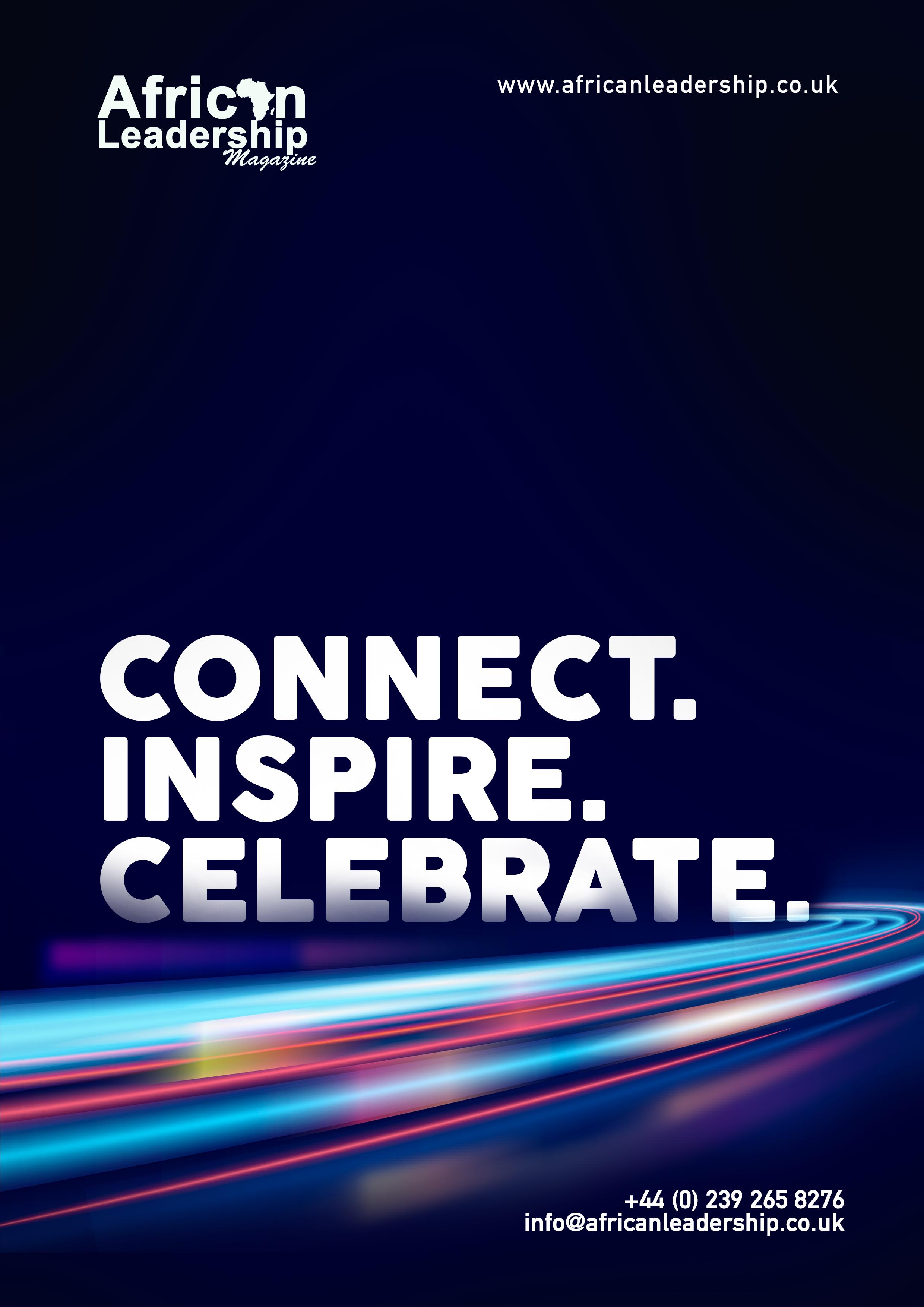
Professor Kevin Chika Urama, the esteemed Vice President of the African Development Bank (AfDB), has been an inspiring figure and a profound source of knowledge in various fields. In this article, we will explore Kevin Urama’s remarkable achievements at the AfDB and shed light on his significant contributions that have positioned him at the forefront of his field.
Urama, under the leadership of AfDB President Akinwumi Adesina, introduced innovative flagship knowledge products, including macroeconomic performance and country-
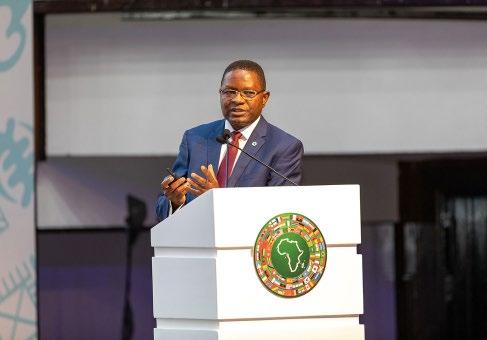
focused reports. These products have greatly enhanced the impact of the institution’s annual Africa Economic Outlook report.
Although he initially served in an acting capacity, Urama officially assumed the position of AfDB Vice President on April 1, 2023. Dr. Adesina stated, “I am pleased to appoint Professor Kevin Chika Urama as Chief Economist and Vice President for Economic Governance and Knowledge Management. Professor Urama is a respected global development economist and business leader with extensive experience in
economic policy and knowledge management. He will lead the team and fulfill the bank’s mandate on Economic Research, Economic Governance & Knowledge Management.”
Expressing his gratitude for the appointment, Urama stated, “I would like to thank the President of the African Development Bank Group, Dr. Adesina, for appointing me as the Chief Economist and Vice President for Economic Governance and Knowledge Management Complex at the African Development Bank Group. I am confident that together with the amazing teams in the vice presidency and across the Bank Group, we will build on the institution’s role as the leading provider of knowledge solutions to drive inclusive growth and sustainable development in Africa.”
Born and raised in Nigeria, Kevin Urama embarked on his journey with a strong educational foundation. He holds a Ph.D. in Land Economy from the University of Cambridge, an MPhil in Land Economy from Cambridge University, a Master of Science in Agricultural Economics from the University of Nigeria, and a bachelor’s degree in Agricultural Economics from the University of Nigeria. Urama has received numerous awards for his academic achievements and contributions to science, leadership, and community development.
Urama’s association with the African Development Bank started many years ago, and his determination and exceptional skills quickly earned him recognition, leading to his progression through various critical roles within the organization.
As we reflect on Kevin Urama’s outstanding achievements at the African Development Bank, it is crucial to carry forward his vision and build upon his successes. By embracing sustainable development principles, fostering innovation, and prioritizing collaboration, we can create a better future for Africa and the world. Let us draw inspiration from Urama’s accomplishments and work collectively towards a more prosperous, inclusive, and sustainable future.
Urama has made exceptional contributions to advancing gender equality and women’s empowerment. Recognizing the pivotal role of women in driving sustainable development,
he has prioritized initiatives promoting gender inclusivity, women’s entrepreneurship, and access to education and healthcare. Through his leadership, Urama has empowered countless women across Africa, enabling them to shape their communities and contribute to the continent’s progress.
Fostering Entrepreneurship and Innovation:
Urama has played a significant role in fostering entrepreneurship and innovation in Africa. He has actively supported and promoted initiatives that empower local entrepreneurs, providing them with the necessary tools, resources, and funding to realize their business ideas. Urama’s efforts have nurtured a vibrant entrepreneurial ecosystem, spurring economic growth and job creation.
Driving Renewable Energy Projects:
Recognizing the importance of renewable energy in sustainable development, Urama has played a pivotal role in overseeing the successful execution of numerous renewable energy projects across Africa. These initiatives not only promote clean energy but also create employment opportunities and contribute to the overall economic growth of the region.
Vision and Strategic Approach: Urama’s outstanding achievements at the African Development Bank can be attributed to his strong vision and strategic approach. He possesses a deep understanding of the challenges and opportunities facing Africa and has formulated a clear roadmap to drive sustainable development. Urama’s ability to envision the bigger picture and chart a course of action has enabled him to make significant strides in transforming the continent’s socioeconomic landscape.
Urama’s outstanding achievements at the African Development Bank can be attributed to his strong vision and strategic approach
Recognizing the importance of forging strong partnerships with international institutions, Urama has successfully established and nurtured collaborations with organizations such as the United Nations, World Bank, and regional development banks. These partnerships facilitate knowledge exchange, resource mobilization, and the implementation of joint initiatives. They have not only enhanced the effectiveness of Urama’s work but have also positioned Africa
Embracing Technology for Development: Urama acknowledges the transformative potential of technology in driving development. He has actively championed the integration of technology into sustainable development initiatives. By harnessing the power of digital innovation, Urama has propelled Africa towards a more inclusive and digitally empowered future. Initiatives such as digital entrepreneurship programs, tech incubators, and investments in digital infrastructure have created an environment conducive to technological advancement and economic growth.
Urama’s unwavering commitment to social impact and poverty alleviation is evident throughout his tenure at the AfDB. He has championed programs aimed at improving access to quality education, healthcare, and basic amenities in underserved communities. By prioritizing social inclusion, Urama has made significant strides in reducing poverty levels and improving the lives of countless individuals across the continent.

One of the key factors that distinguish Kevin Urama is his ability to foster collaborations and partnerships. Recognizing the importance of multi-stakeholder engagement, he has successfully forged alliances with governments, international organizations, private sector entities, and civil society groups. These collaborations have facilitated the pooling of resources, knowledge sharing, and the implementation of large-scale initiatives with far-reaching impacts on sustainable development in Africa.
Recognition and Global Influence:
Kevin Urama’s exceptional achievements have garnered recognition and respect on the global stage. His expertise, leadership, and contributions to sustainable development have earned him acclaim from international organizations, governments, and renowned experts in the field. Urama’s influence extends beyond the African Development Bank, as he continues to shape the discourse and policies surrounding sustainable development worldwide.
Thought Leadership and Advocacy: Urama serves as a thought leader and advocate for sustainable development. He actively engages in public speaking engagements, conferences, and forums, sharing his insights and experiences to inspire others. Through thought-provoking speeches and advocacy efforts, Urama raises awareness about the importance of sustainable development and the need for concerted global action.
Mentorship and Capacity Building:

Recognizing the value of nurturing future generations, Urama plays an instrumental role in mentoring young professionals within the African Development Bank and beyond. His commitment to capacity building and knowledge transfer empowers individuals to become change agents in their own right. By sharing his expertise and providing guidance, Urama contributes to building a strong pipeline of talented individuals dedicated to driving sustainable development in Africa.
Kevin Urama’s exceptional achievements serve as an inspiration to aspiring leaders in sustainable development. His story showcases the transformative power of passion, dedication, and relentless pursuit of excellence. Urama’s journey reminds us that individuals have the capacity to drive meaningful change and contribute to building a better, more sustainable world. His remarkable contributions at the African Development Bank have positioned him as a trailblazer in the field of sustainable development. Through visionary leadership, strategic initiatives, and unwavering dedication, Urama has transformed lives, communities, and the trajectory of the African continent. His legacy inspires current and future leaders to push boundaries, challenge norms, and drive positive change.

Walton Ekundayo Gilpin is the Managing Director and CEO of Rokel Commercial Bank (SL) Ltd., a leading Bank in Sierra Leone. He is a seasoned and internationally recognised financial expert with over 27 years of experience managing complex policies and processes in banking and banking-related institutions in Africa, Europe, the South Pacific, the Caribbean, and the United States. Previously, he was an advisor to the Commonwealth Secretariat in the United Kingdom, where he managed significant financial and debt restructuring initiatives that formed the basis of effective and sustainable reform strategies in more than 25 countries. In this capacity, he also helped strengthen the technical and management capacities of financial sector professionals by emphasising approaches
and skill sets that bode well for institutional transformation and enduring change.
His goal-oriented professional philosophy has been a hallmark of his career. During his career, he has provided technical input into complex interactions with international partners, such as the International Monetary Fund and World Bank, and was instrumental in financial research analysis, having worked in the Research and International Financial Departments of reputable institutions. His capacity-building skills were significantly useful in designing and implementing training modules in financial analysis for public sector officials in government and central bankingrelated institutions. He was an economist and senior analyst at the Bank of Sierra Leone,
where he rose to the position of Section Head within 4 years of service. In private practise, Walton has served as a consultant in public finance, risk management, liquidity management, and bank-sovereign interdependence, to name a few. He has worked on projects for reputable organisations such as the International Monetary Fund, the World Bank, the African Development Bank, and the United Nations Development Programme.
He has contributed to critical thinking and intellectual development in banking, finance, and debt management through reports and publications. His commitment to capacity building includes mentorship and professional development throughout his career. He holds four doctorate degrees, two academic and two honoris causa, in International Relations, International Public Policy, Business administration, and Public administration, respectively. He holds other graduate degrees and professional qualifications in economics, international relations, finance, and debt management.
In November 2017, he was invited to join the Afro Champions Initiative, which is led by notable African leaders in politics and business. Since taking over the reins of office in July 2017, he has turned the Bank into a profitable and viable institution, which is now enviably the second-most profitable Bank in Sierra Leone. Since 2017, he has won over 50 international and local awards and accolades, including: (i) Commander of the Order of the Rokel; (ii) Best Chief Executive Officer; (iii) One of the Most Influential Sierra Leoneans; (iv) Excellence in Leadership and Development; (v) Medal of Honour; and (vi) Ambassador for Youths, just to name a few.
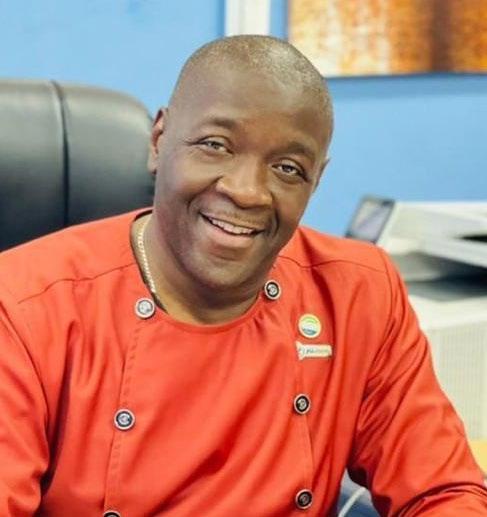
Hobbies: Reading extensively, with particular emphasis on Christian literature, general knowledge, and economic policy. Avid lover of Sports and Physical fitness, with particular emphasis on sharing experiences and talents with young people. A passion for motivational speaking and teaching, combined with a desire to be a pacesetter and a changemaker, is the driving force behind my favourite pastimes.
Background: - Walton Dayo Gilpin hails from a Christian family of six who have taken up the service of God and have also excelled in their secular and professional lives. His efforts in life have all been predicated upon the grace and favour of God, which is the source of blessing and inspiration for his life. He has been a committed Christian since the early 1980s and was born in Bo town, Southern Sierra Leone. He was educated in Sierra Leone, the U.K., and the U.S.A. and
studied at universities through distance learning in the Philippines and Spain. Walton has attended and organised international professional courses in public policy, finance, banking, statistics, public debt management, liquidity management, and general fiscal risk concepts in several countries in Africa, Asia, Europe, the Caribbean, the Pacific, Australia, and America.
He has received recognition, academic awards, diplomas, and certificates from the following academic and business institutions: (i) Merriweather Road Preparatory School; (ii) Tower Hill Municipal School; (iii) Prince of Wales Secondary School; (iv) the University of Sierra Leone; (v) Manchester Metropolitan University, (vi) Columbia University, (vii) Commonwealth and open Universities, (viii) Delft University of Technology, (ix) Aldersgate College, (x) London Bridge Business School, (xi) West African Institute for Public Administration, (xii) Macroeconomic Institute for Finance and Economic Management, (xiv) the International Monetary Fund, (xv) the World Bank, (xvi) Commonwealth Secretariat, and (xviii) the United Nations Institute for Training and Research, but to name a few.
He is a pacesetter, change agent, and resultoriented individual who does not like taking NO for an answer.

Within the vast realm of industry and commerce, where intricacy intertwines with diversity, the Tanzania Bureau of Standards (TBS) emerges as a catalyst for standardization, safety, and quality assurance.
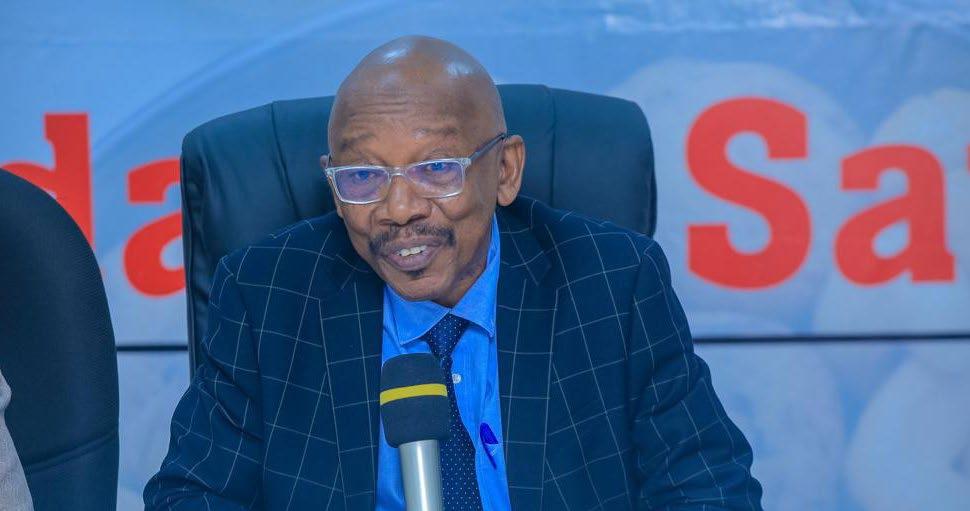
Under the visionary leadership of Dr. Athuman Ngenya, the TBS operates within a meticulously crafted institutional legal framework defined by the Standards Act No. 2 of 2009 and its subsequent amendments. Anchored by its mission, the Bureau orchestrates a symphony of services that encompass standards development, conformity assessment, product certification,
inspection, testing, and metrology services.
This article focuses on the multitude of measures and initiatives undertaken by the Bureau, orchestrating a harmonious blend of regulatory prowess and the promotion of compliance with quality and safety standards. Embracing a comprehensive approach, the TBS operates a network of eight cutting-edge testing laboratories strategically stationed across various sectors. These laboratories embody excellence, catering to a wide spectrum of disciplines including food chemistry, microbiology, chemistry, mechanical engineering, electrical and electronics, building
and construction, and packaging. Aligned with the global tapestry of best practices, these laboratories proudly carry the esteemed accreditation of ISO/IEC 17025 standards. By actively participating in the SADCMET proficiency testing schemes, the Bureau further fortifies the credibility and acceptance of its testing results.
Beyond the realm of testing, the TBS stands tall as the national beacon of metrology. Armed with unwavering dedication, it upholds the responsibility of safeguarding national measurement standards while imparting traceability to calibration laboratories. Four specialized metrology laboratories, each a realm unto itself, embark on a relentless pursuit of excellence in thermometry, mass and related quantities, dimensional metrology, and chemical metrology. These laboratories, akin to their testing counterparts, conform to the zenith of international best practices, bearing testimony to their accreditation. Collaborative alliances with esteemed institutions like the National Metrology Institute of South Africa (NMISA) and the Technical Research Institute of Sweden (RISE) serve as the guardians of the Bureau’s measurement traceability.
In a resolute endeavor to foster voluntary compliance, the Bureau proudly unfurls the Standards Mark of Quality Certification Scheme. This groundbreaking initiative grants manufacturers the privilege of adorning their products with the revered Standards Mark of Quality, signifying independent testing and certification against the pertinent standards of
Tanzania. This prestigious mark serves as an irrefutable testament to the product’s quality and sets it apart in a competitive marketplace. Furthermore, the Bureau takes momentous strides in facilitating trade by certifying products under the Tested Product Certification Scheme, enabling companies to lay claim to adherence to international or foreign standards.
As a testament to its unwavering commitment, the Bureau administers the Batch Certification Scheme, meticulously safeguarding imports governed by compulsory standards. Through seamless communication via customs harmonized codes (HS codes) and stringent preshipment inspections, the Bureau ensures that product quality and safety remain untarnished. By extending its purview to encompass destination inspections for products that evade scrutiny in their country of origin, the Bureau fortifies compliance and collaborates with international inspection bodies to achieve this monumental task.
When it comes to the realms of food and cosmetics, the TBS forges a robust quality control mechanism through the registration of premises and products. This streamlined process empowers stakeholders to diligently assess the safety status of food and cosmetic products before their importation or release into the market, thereby promoting compliance at a considerably lower cost.
Vigilant market surveillance inspections stand as the vanguard, diligently enforcing safety and quality requirements. While emphasizing the primary responsibility of manufacturers, importers, and distributors in ensuring product safety and quality, the Bureau leaves no stone unturned in fostering voluntary compliance. The Bureau wields an arsenal of enforcement actions, ranging from license suspension or cancellation, preventing the sale of noncompliant products, seizure and forfeiture of products, financial penalties, recalls, and warning letters.
In the grand tapestry of Tanzania’s regulatory landscape, the Bureau of Standards reigns supreme, spearheading the crusade to ensure compliance with stringent quality and safety standards. Armed with accredited testing and metrology laboratories, pioneering certification schemes, batch certification for imports, and meticulous product and premises registration, the Bureau tirelessly endeavors to safeguard consumers and foster a culture of unwavering commitment to quality and safety within the marketplace.
In the grand tapestry of Tanzania’s regulatory landscape, the Bureau of Standards reigns supreme, spearheading the crusade to ensure compliance with stringent quality and safety standards.
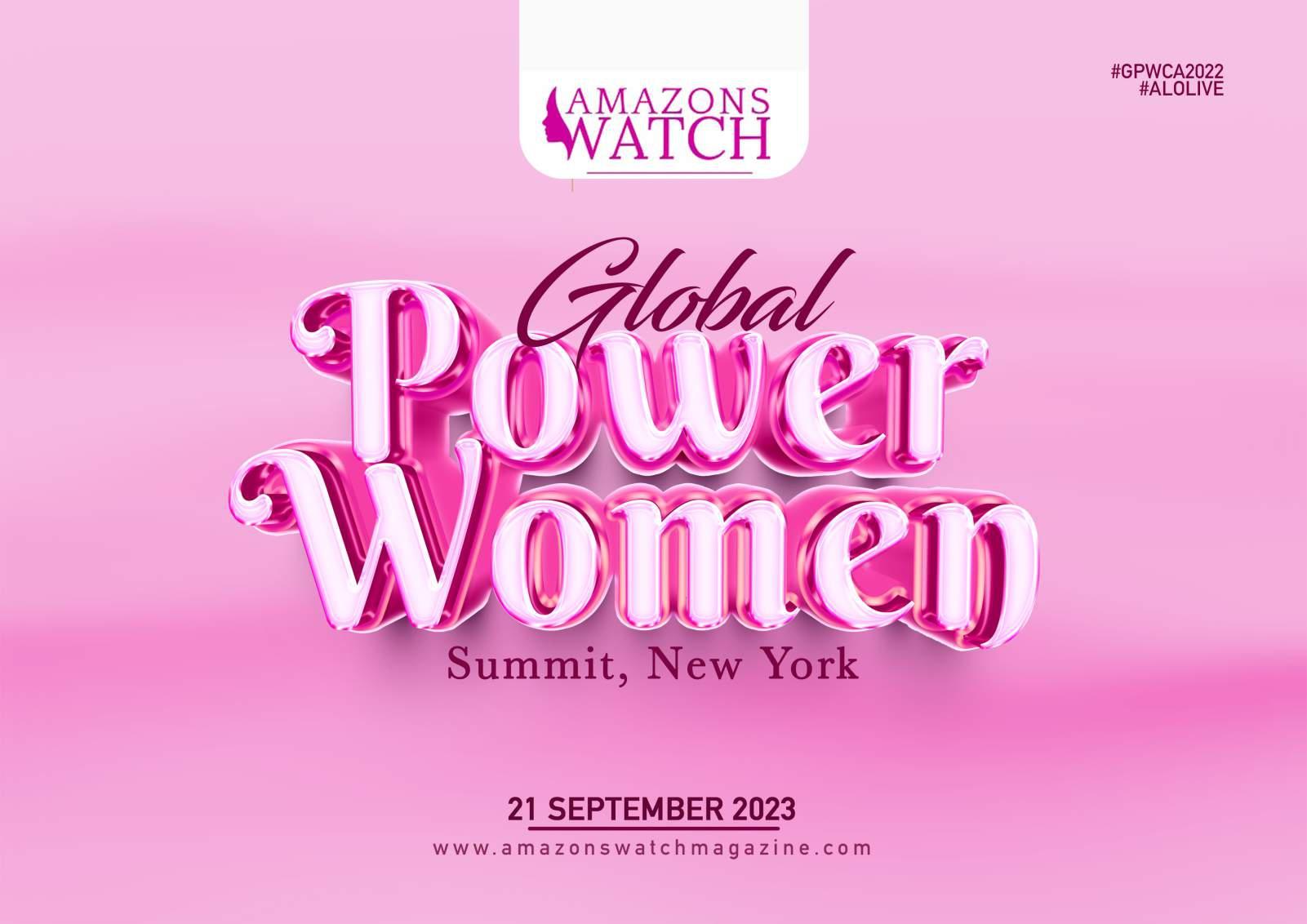
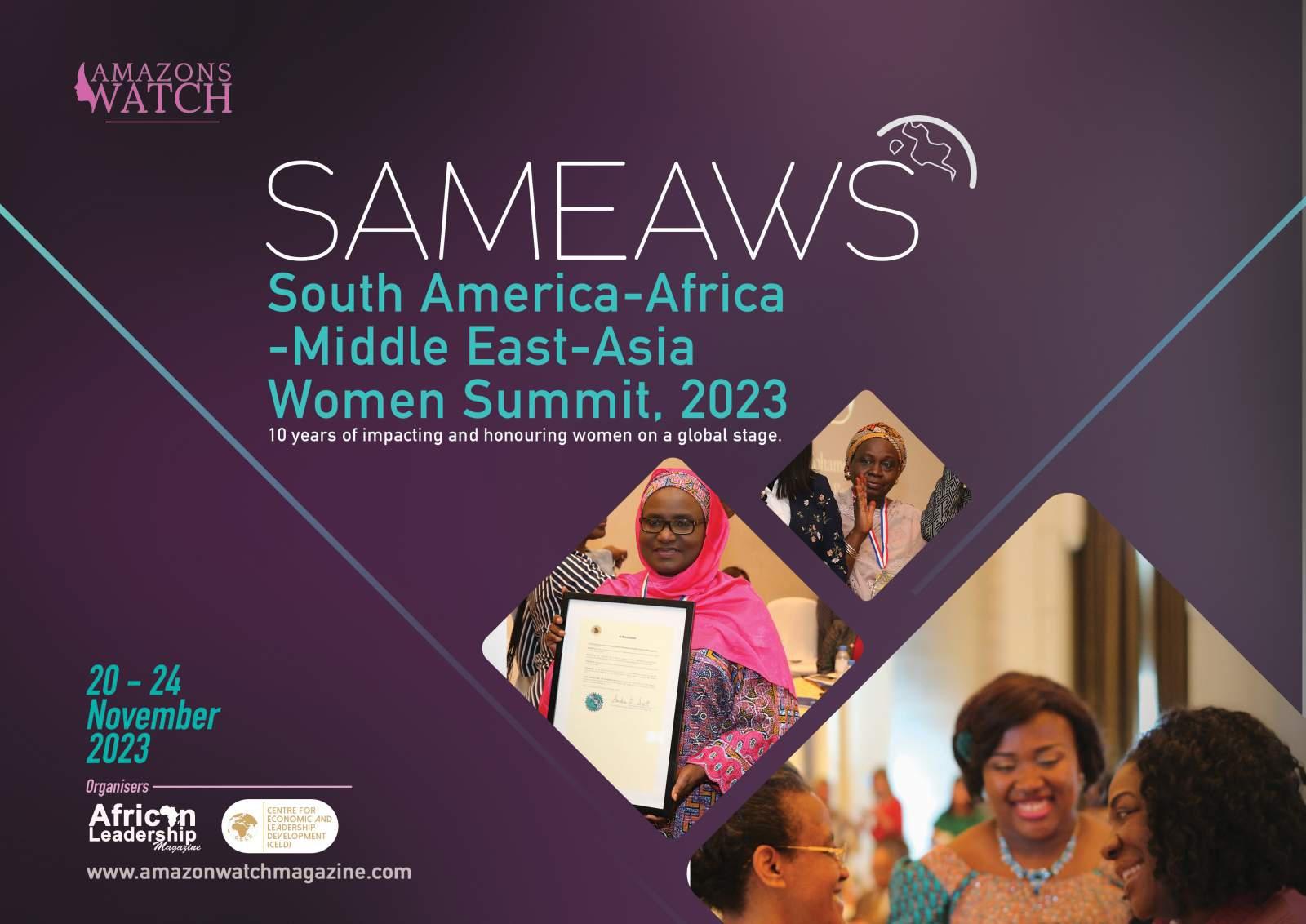
Michel Ussene, the visionary creator of the Uxene smart city in Mozambique, is a person of great dignity and a business magnate with immense potential. This article aims to express the positive prospects of the Uxene smart city and highlight some of the remarkable achievements of Michel Ussene. The smart city, driven by youth and specifically designed to cater to individuals under the age of 40, has garnered global attention and received commendations. With a total cost exceeding three billion dollars, this project is not solely a profit-oriented venture for Ussene but rather a heartfelt contribution to the development and prosperity of Maputo, Mozambique, and the entire African continent.

In a recent interview with the team from African Leadership Magazine, Ussene emphasized the significance of preparing the continent for the anticipated surge in urban population by the year 2025. The projected population increase from 1.4 billion to 2.6 billion in Africa by 2035 necessitates the development of enhanced infrastructure, including roads, railways, ports, and healthcare facilities. Ussene firmly believes that investing in projects like the Uxene smart city can effectively address social issues, promote development, and capitalize on the opportunities arising from Africa’s expanding population.
The core objective of the Uxene smart city is to offer affordable housing options while fostering cultural integration and preserving identity. Ussene deliberately selected young and talented Mozambican architects to design the city, ensuring that it encapsulates the aspirations and needs of its future residents. The project’s model is considered replicable and has already piqued the interest of other African nations.
The inspiration for the Uxene Smart City project originated from a moment when Ussene returned home with his son and noticed the stark contrast between gated communities and the lack of public amenities in Maputo. This experience motivated him to create an inclusive city that
seamlessly blends modern comforts with the natural beauty of its surroundings. Notably, the streets within the city will be named after prominent Africans who have made significant contributions in diverse fields, aiming to elevate the pride and celebrate the achievements of the continent beyond its political figures.

Ussene acknowledges the challenges associated with developing a smart city but emphasizes the significance of adhering to the project’s schedule and adopting a unique approach. Although the project’s commencement was delayed due to bureaucratic procedures, Ussene remains optimistic about its eventual success once the required documentation is obtained. He firmly believes that constructing a smart city that caters to the majority of the population, taking into account their purchasing power, is pivotal in ensuring its sustainability and triumph.
The Uxene Smart City project in Mozambique represents an innovative and youth-driven paradigm in urban development. Michel Ussene’s vision to create an inclusive city that embodies the African identity and provides affordable housing holds tremendous potential for addressing social challenges, fostering progress, and capitalizing on the opportunities arising from Africa’s burgeoning population.
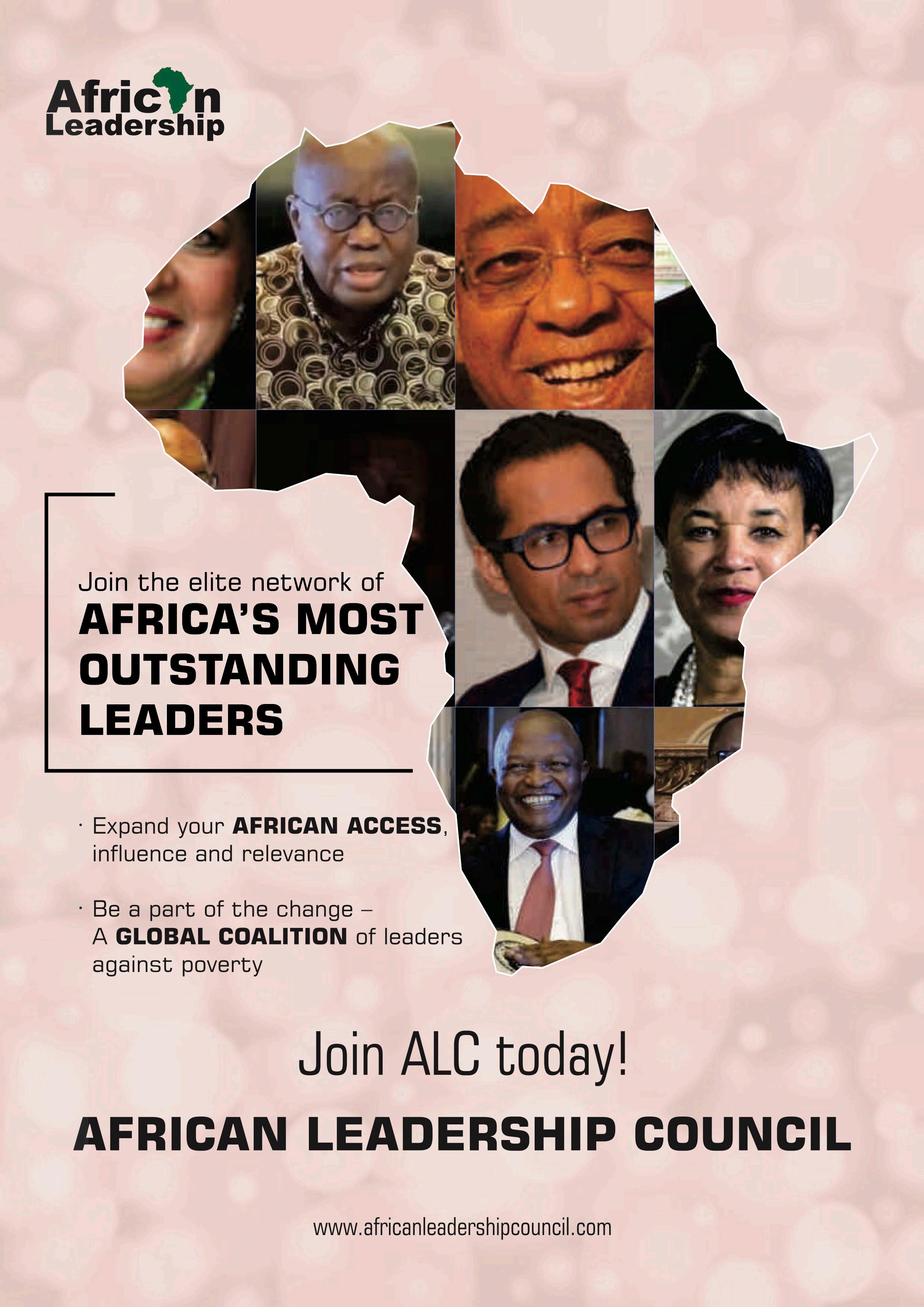
Henok Kebede Tadesse has been the Chief Executive Officer of Amhara Bank S.C. since November 2021. He started his banking career as a Management Trainee and Bank Officer at the Commercial Bank of Ethiopia in April 2002. During his tenure at the Commercial Bank of Ethiopia, he progressed through various levels up to the position of Director, District, where he was responsible for managing 57 Branch Offices and 1,600 employees. Prior to joining Amhara Bank S.C., he served as Vice President and Chief Banking Operations Officer at Dashen Bank and acted as the Chief Executive Officer in their absence.
With the objective of contributing to the betterment of the organizations he works for and having had the opportunity to observe the business environments of international banks such as Commerz Bank, Dutch Bank, State Bank of India, ICICI Bank, City Bank, Standard Bank, and HSBC, he has gained valuable insights on how to view the big picture in an organization. As a leader, he strives to anticipate and take actions to avoid or minimize potential conflicts by encouraging and supporting teams to

consider the broader perspective. Previously, he has been involved in business process reengineering projects aimed at streamlining and eliminating non-value-adding activities.
He strongly believes that decision-making is a fundamental management function necessary for executing tasks. Therefore, he encourages and supports the teams under his supervision to make informed and timely decisions to avoid unnecessary delays. Unless a situation is critical and requires his direct intervention, he empowers team members and delegates responsibilities, allowing them to work according to their own judgment and providing them with the opportunity to learn from any mistakes.
Managing quality service requires careful analysis as it is influenced by various internal and external factors. Consequently, he encourages and coaches his team members to consistently deliver high levels of individual and team performance that exceed specified expectations. He also develops strategies to enhance business results, understanding that efficiency should lead to effectiveness when executed properly.
In terms of delivering value for money, as a manager, he takes his responsibility seriously in assessing whether the bank has achieved the maximum benefit from the services provided to customers with the available resources. Distinguishing between efficiency and effectiveness is crucial in achieving better outcomes. Sometimes, teams may focus solely

on doing things right without considering whether they are doing the right things. As a leader, he has learned that being emotionally intelligent helps him understand the emotions of employees under his supervision. He strives to develop others to improve performance in their current roles while preparing them for future positions. He also reinforces effective behavior or results through timely acknowledgment, recognition, and feedback.
In terms of education, he holds a BA in Management from Addis Ababa University and an MBA in International Business from the University of Greenwich, London, United Kingdom. He has also attended various training programs abroad, including Leadership for Senior Executives at Harvard Business School, Boston, USA; SME Banking Excellence in Johannesburg, South Africa; Corporate Governance in Dubai, UAE; Seminars for CBE Successors at Frankfurt School, Frankfurt, Germany; Executive Development Programme for Senior Officials at State Bank of India, Hyderabad, India; and Management and Leadership at Frankfurt School, Frankfurt, Germany. He has also participated in numerous training programs in Addis Ababa, Ethiopia.
Apart from his professional endeavors, he is engaged in other activities. He has created a Telegram group (@CBOO1) to enhance the leadership capabilities of managers, and he is also involved as a philanthropist with Mary Joy Ethiopia, a resident charity organization in Ethiopia.
Mary Mumba is a certified expert in financial inclusion and currently serves as the Chief Executive Officer of the Zambia Credit Guarantee Scheme (ZCGS). ZCGS is a governmentowned company with a mandate to provide partial credit guarantees to viable and eligible Zambian Micro, Small, and Medium Enterprises (MSMEs) that have insufficient collateral, in order to enhance their access to affordable financing from lending financial institutions. This initiative promotes the growth, development, job creation, and prosperity of MSMEs, which are significant contributors to the economies of most developing countries. Lack of access to finance, mainly due to a lack of collateral, is a significant constraint to business development in Africa.

Prior to joining the Zambia Credit Guarantee Scheme, Mary worked for Zambia National Commercial Bank and National Savings and Credit Bank, where she gained extensive experience in banking. She holds a Bachelor of Arts degree in Public Administration and Development Studies from the University of Zambia. She has also obtained scholarships for her master’s degrees: a Master of Science degree in Microfinance from the University of Bergamo in Italy, and a Master’s degree in Business Administration from Business School Netherlands.
Mary is an alumna of Harvard Business School, having received training in strategic leadership in financial inclusion. She has also received training from the Coady Institute of Canada in Community-based Microfinance for Financial Inclusion. Additionally, she holds certificates in Credit Management and Compliance Management from the Institute of Credit Management in South Africa and the University of Cape Town in South Africa, respectively. Mary is a diploma holder in Banking and Finance from the Zambia Institute of Bankers. In her personal life, Mary is a mother of four. During her spare time, she enjoys gardening, watching movies, and reading.
In the dynamic realm of Madagascar’s economic panorama, one individual emerges as a catalyst for transformation and advancement: Rindra Hasimbelo Rabarinirinarison. As the esteemed Minister of Economy and Finance of Madagascar, handpicked by President Andry Rajoelina in August 2021, Rabarinirinarison has pioneered remarkable accomplishments for economic growth, recovery, and progress. Her strategic foresight, resolute commitment, and extraordinary leadership have propelled Madagascar towards a bright future. This led to her emergence as the African Minister of the Year 2023 in London. In this captivating and exclusive interview with the ALM team, she takes us on an expedition through the extraordinary achievements of her ministry and the profound influence she has had on
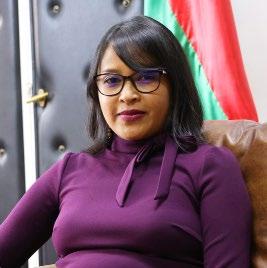
the economic landscape of the nation, all under the guidance of President Andry Rajoelina. (Excerpt)
According to the International Monetary Fund (IMF), Madagascar’s economic growth is expected to stabilize around 4.0 percent in 2023. What is your take on this data as of today, and what are some of your efforts to promote economic growth in Madagascar?
In 2023, many economic growth drivers are expected to play their roles and lift our economy. Among those drivers is the tourism sector. Madagascar will host the 11th Indian Ocean Islands Games in August. This will increase the influx of tourists in the country and contribute to the development of activities in transport, hospitality, entertainment, etc. Moreover, most of the airlines serving the country have already announced that they will significantly increase the number of their weekly flights; for instance, Kenya Airways will have up to 14 flights a week starting this June.
Another important sector is mining. We just adopted a new mining code in June of this year, in parallel with other measures such as the progressive lift on the gold export ban and the issuance of mining permits, measures that will certainly boost a new dynamism in this sector. This mining sector is also benefiting from a global demand for necessary minerals for battery manufacturing processes (graphite, nickel, cobalt, etc.), which is accompanying the energy transition currently underway in most countries. In the first quarter of 2023, the graphite mining sites of Sahamamy and Molo entered their production phase. Each of them has a capacity of around 17,000 TPA.
Agriculture and agroindustry are also engines of our economy. Our goal is to become food self-sufficient in the medium and long term. We have been intensively investing in developing our agriculture, livestock, and fisheries activities. We have also been working on strengthening the nexus between agriculture and industry as a way to fully exploit our potential in these sectors. Since 2022, we have seen a particular dynamism in this sector, providing substitutes for imports that have become more and more expensive due to global inflation.
Of course, there are downside risks that, if materialized, would lead to an economic slowdown or contraction. However, we believe that Madagascar’s economic growth may exceed 4% in 2023.
You recently emerged as the winner of the African Minister of the Year Award for Economic Growth, Recovery, and Development. How does this make you feel?
Emerging as the African Minister of the Year is a recognition that makes me particularly proud and pushes me to move forward, pledging to serve not only my country but also the entire African continent for its development. It will certainly allow me to raise Africa’s voice and make it count more and more as we emerge as the future continent facing the struggles of other continents.
Naturally dynamic, passionate, and determined, I am someone who gives a thousand percent of my energy to my job and my country, with or without recognition. I have been educated with a volunteer spirit, which has given and continues to push me to serve and deliver the best of myself. Being recognized for my work, as done by ALM at ABLA 2023, is just God’s grace and an added bonus that will help me do even better.
Finally, allow me to take this opportunity to express how ready and open-minded I am to any kind of collaboration and partnership that can lead to the path of development for my country and the African continent. Together, we can make a difference. What unites us is way more important than what divides us. Let’s act together and make it happen for Africa.
Emerging as the African Minister of the Year is a recognition that makes me particularly proud and pushes me to move forward
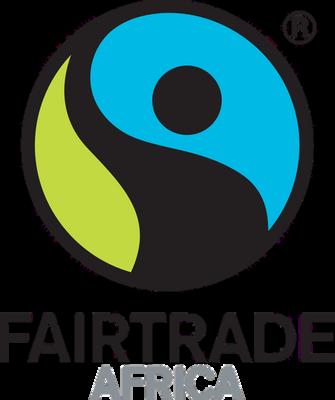
Governance
Strategy & Advocacy
Marketing, Trading, Processing and Finance/ Accounting & Risk Management
supply -chain management
HR/Organisational Development
Donor Relations & Fundraising
With expertise in any of the following areas: W E A R E L O O K I N G F O R : Follow the link to apply: https://fairtradeafrica.net/vacancies-2/
Application Deadline: 14 July 2023
 By King Richard
By King Richard
The dynamic landscape of business, both within and among nations on the global stage, perpetually demands one essential quality for achieving success: networking. In this discourse, we take a deep dive into the profound significance of fostering a robust network among African business leaders, drawing wisdom from influential personalities such as Warren Buffet, Bill Gates, Aliko Dangote, Ngozi Okonjo Iweala, Akinwumi A. Adesina, and Dr. Ken Giami. Moreover, we shed light on the most magnanimous business leaders in Africa, emphasising the imperative nature of nurturing and cultivating the next generation of business luminaries on the continent.
The Power of Networking: Networking stands as a pivotal element for professional advancement and the expansion of enterprises. It encompasses the art of forging meaningful connections, engaging in mutually beneficial interactions, and creating avenues for collaboration. As eloquently expressed by Warren Buffet, the esteemed American business magnate, “Constructing a reputation takes two decades, while its demolition can transpire in a mere five minutes.” These words underscore the criticality of maintaining a robust network and nurturing relationships to ensure sustained prosperity in the long haul.
African Business Leaders and Networking: Africa, a continent brimming with immense potential and an inherent entrepreneurial spirit, echoes the essence of networking through influential figures like Aliko Dangote, a Nigerian business tycoon and philanthropist. Dangote accentuates the role of networking in attaining business growth, stating, “To thrive in the realm of business, one necessitates a network of individuals who genuinely believe in their vision and are willing to offer support.” Networking empowers African business leaders to tap into diverse perspectives, gain access to invaluable resources, and establish partnerships that can propel sustainable growth and development.
The Philanthropic Pursuits of African Business Leaders: The philanthropic endeavours undertaken by business leaders play a pivotal role in addressing societal challenges and fostering sustainable development. Bill Gates, the co-founder of Microsoft and an eminent philanthropist, once posited, “Philanthropy should undertake risks far greater than those pursued in the realm of business.” This sentiment resonates with philanthropic leaders in Africa who actively engage in initiatives that uplift communities, promote education, and combat poverty.
Ngozi Okonjo Iweala, a Nigerian economist and the DirectorGeneral of the World Trade Organisation, stands out as a notable figure who consistently underscores the importance of forging partnerships between the public and private sectors to drive inclusive growth and achieve sustainable development goals. Through strategic networking, philanthropic business leaders can amplify their impact and instigate transformative change within African societies.
Cultivating Future Business Leaders in Africa: While celebrating the achievements of current business luminaries is crucial, equally vital is the nurturing and development of the potential embedded within the next generation. Akinwumi A. Adesina, the President of the African Development Bank, recognises the significance of investing in the youth and empowering them to become future trailblazers. Adesina emphasises, “The youth embody not only the future but also the present.” To secure a prosperous future for Africa, it is imperative to furnish aspiring young entrepreneurs with the necessary support, mentorship, and access to networks that can expedite their growth.
Building a Resilient Network: To fortify the network among African business leaders, it becomes paramount to establish platforms that facilitate meaningful connections, knowledge sharing, and collaboration. Business summits, conferences, and industry events serve as avenues for nurturing relationships, exchanging ideas, and forging strategic partnerships. The sagacity of Dr. Ken Giami, the visionary founder of the African Leadership Council, led to the creation of a platform that brings together African leaders from all walks of life, fostering the indispensable unity required for effective networking and thereby ensuring the continuous ascent of the African continent. The African Leadership Magazine is renowned for frequently organising diverse events, conferences, and summits, creating space for meaningful networking among African leaders and others. Additionally, leveraging digital platforms and social media can expand networking opportunities, enabling leaders to connect across borders and transcend geographical constraints.
Establishing a formidable network among African business leaders is pivotal for driving economic growth, fostering innovation, and effecting sustainable change. Drawing inspiration from influential figures such as Warren Buffet, Bill Gates, Aliko Dangote, Ngozi Okonjo Iweala, and Akinwumi A. Adesina, and Dr. Ken Giami actively participating in the opportunities and events provided by the African Leadership Magazine and becoming an engaged member of the African Leadership Council, African business leaders can harness the power of networking to unlock novel opportunities, forge impactful collaborations, and propel the continent towards a flourishing future.
To thrive in the realm of business, one necessitates a network of individuals who genuinely believe in their vision and are willing to offer support.”
Aliko Dangote
